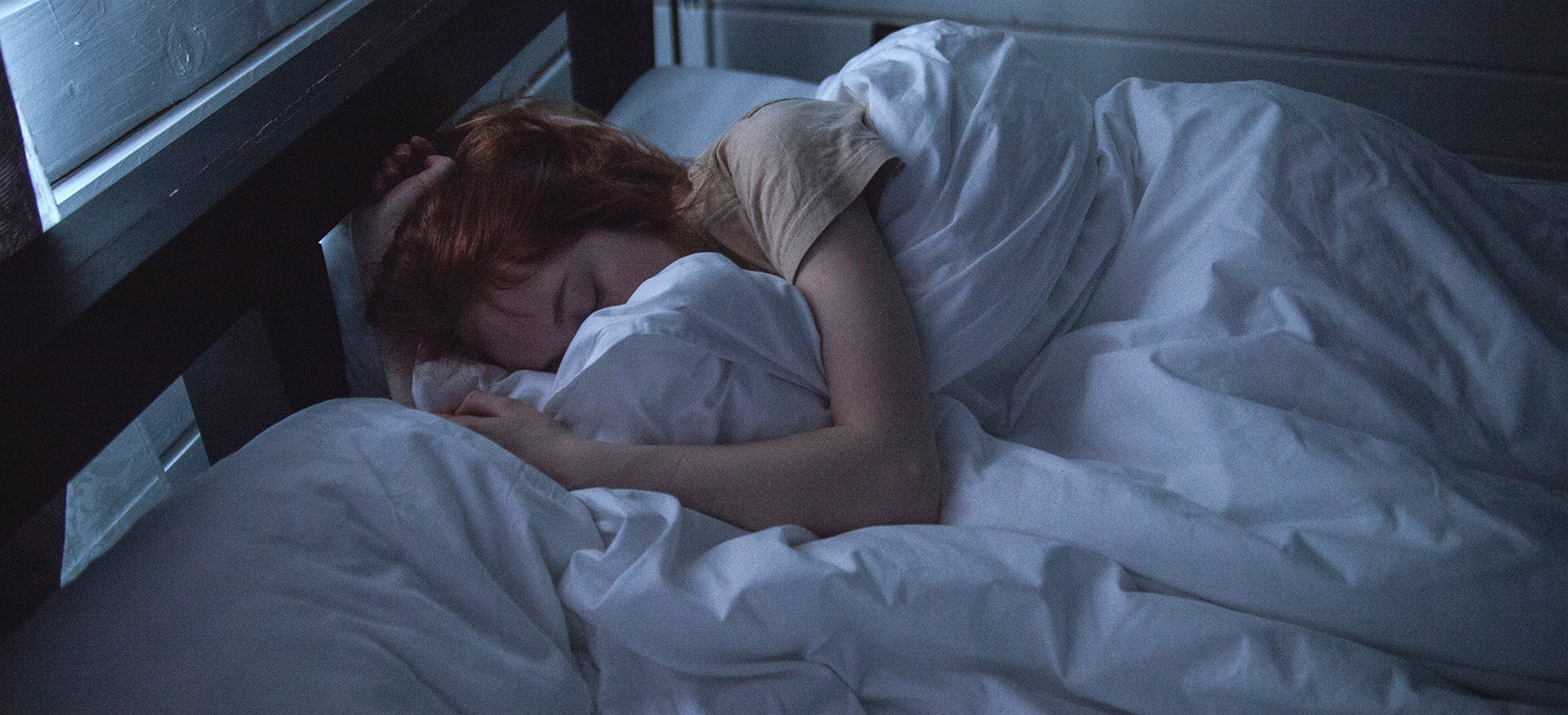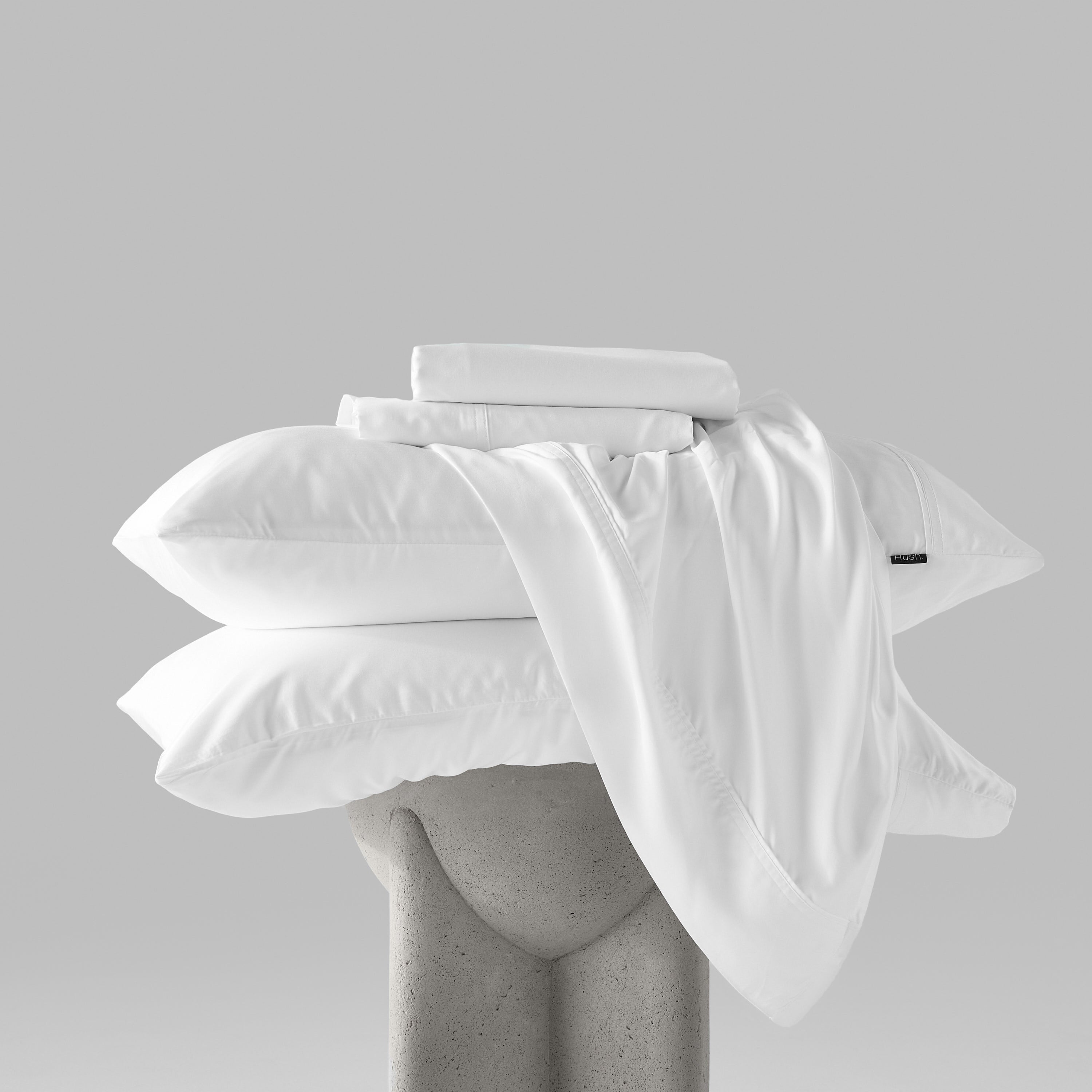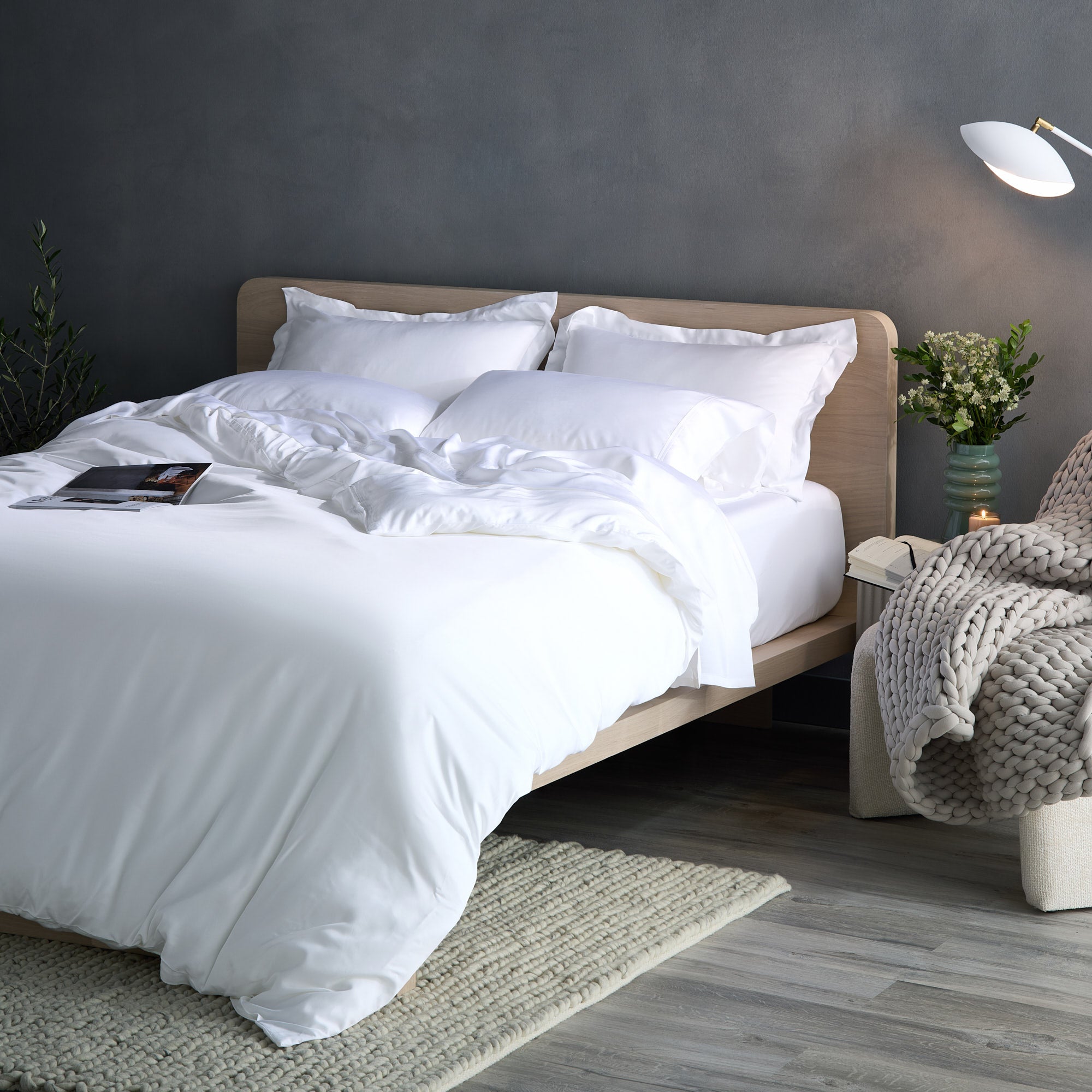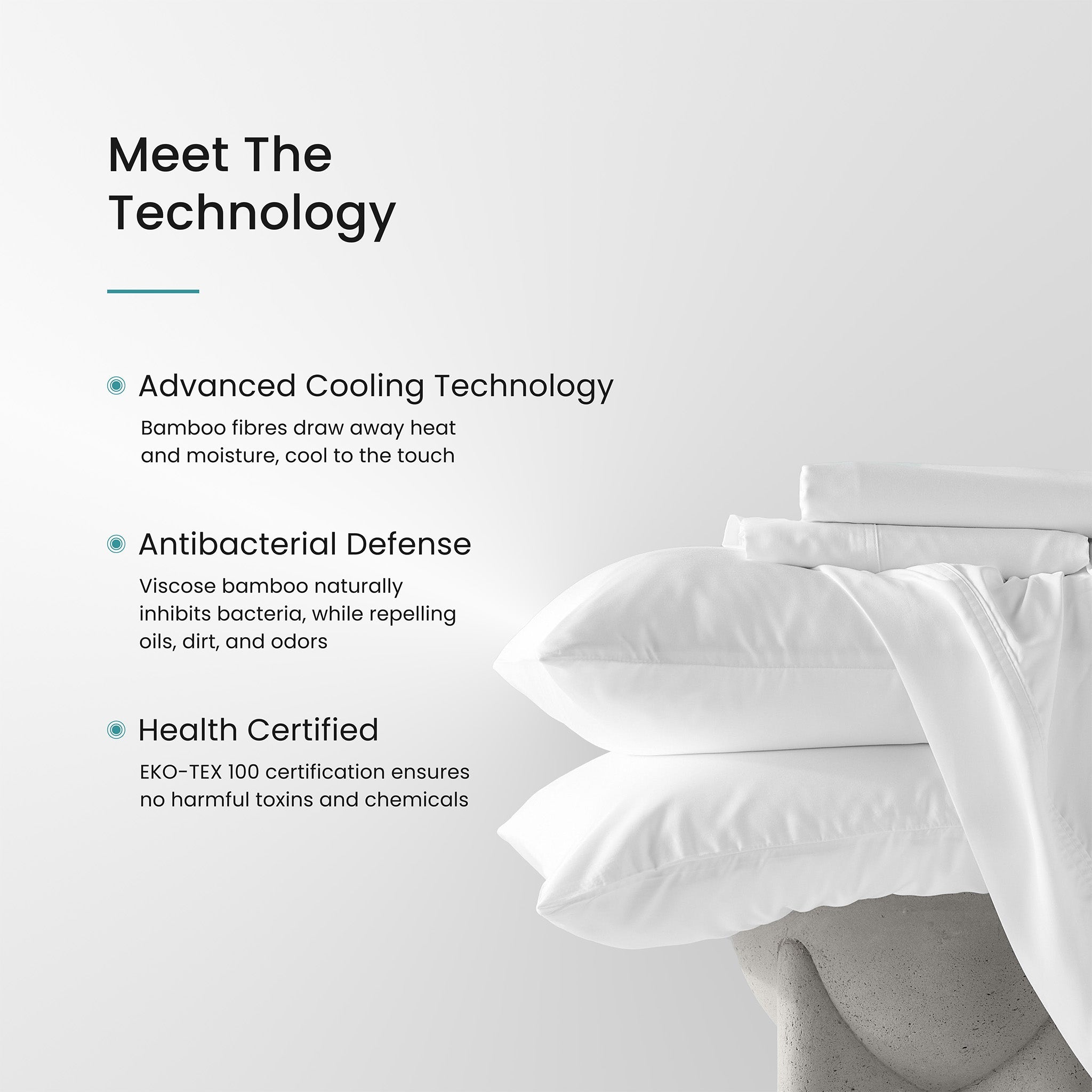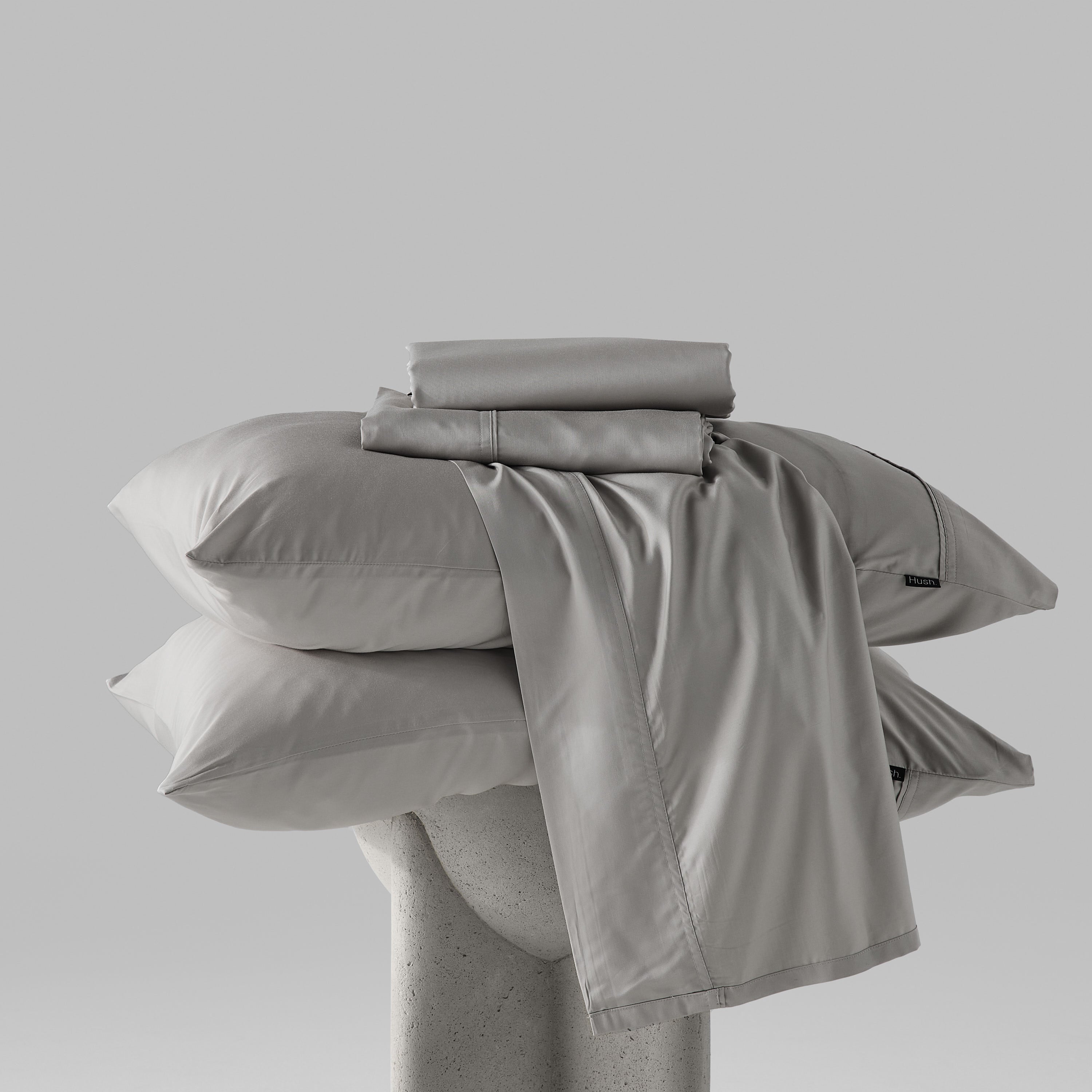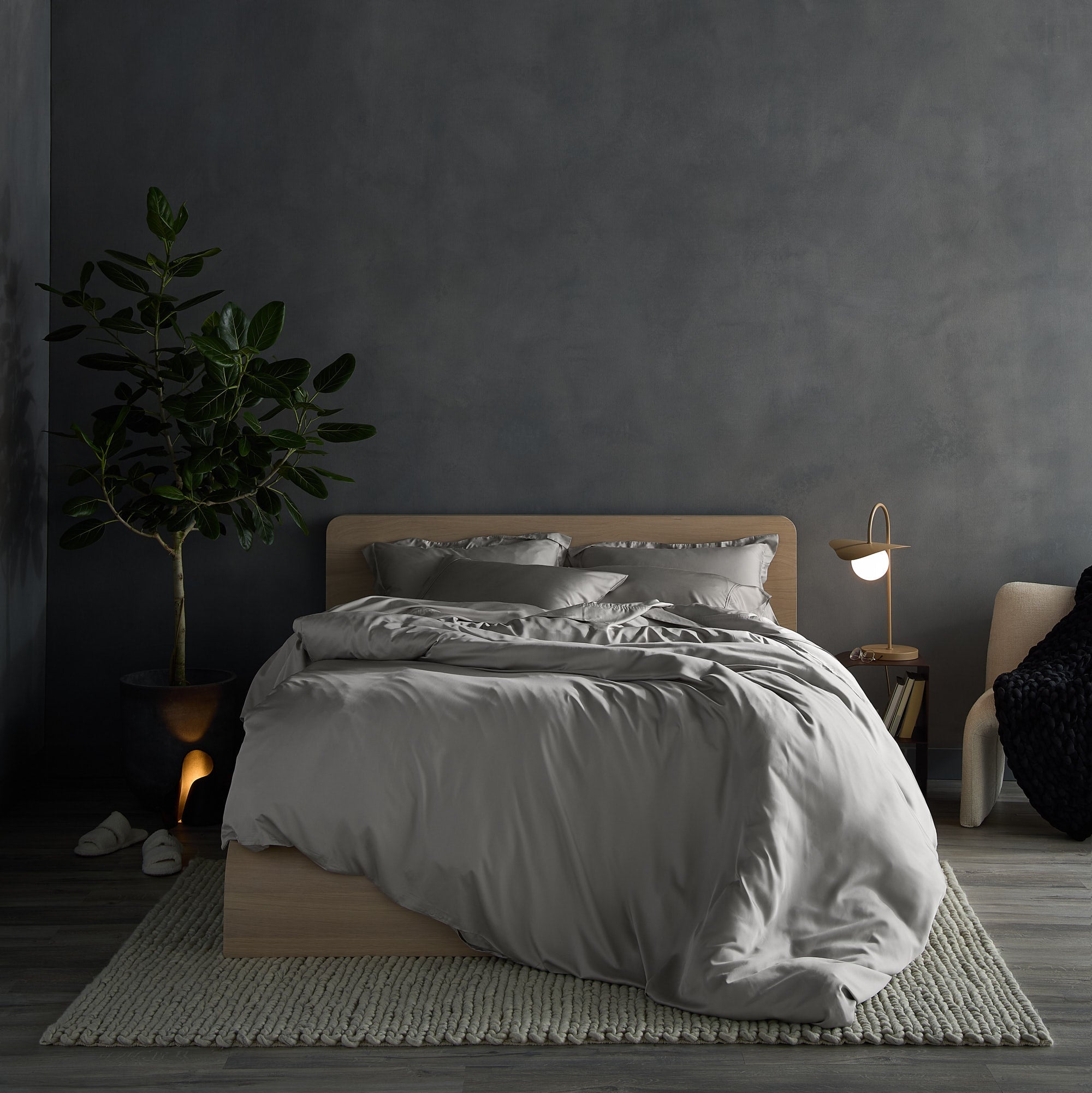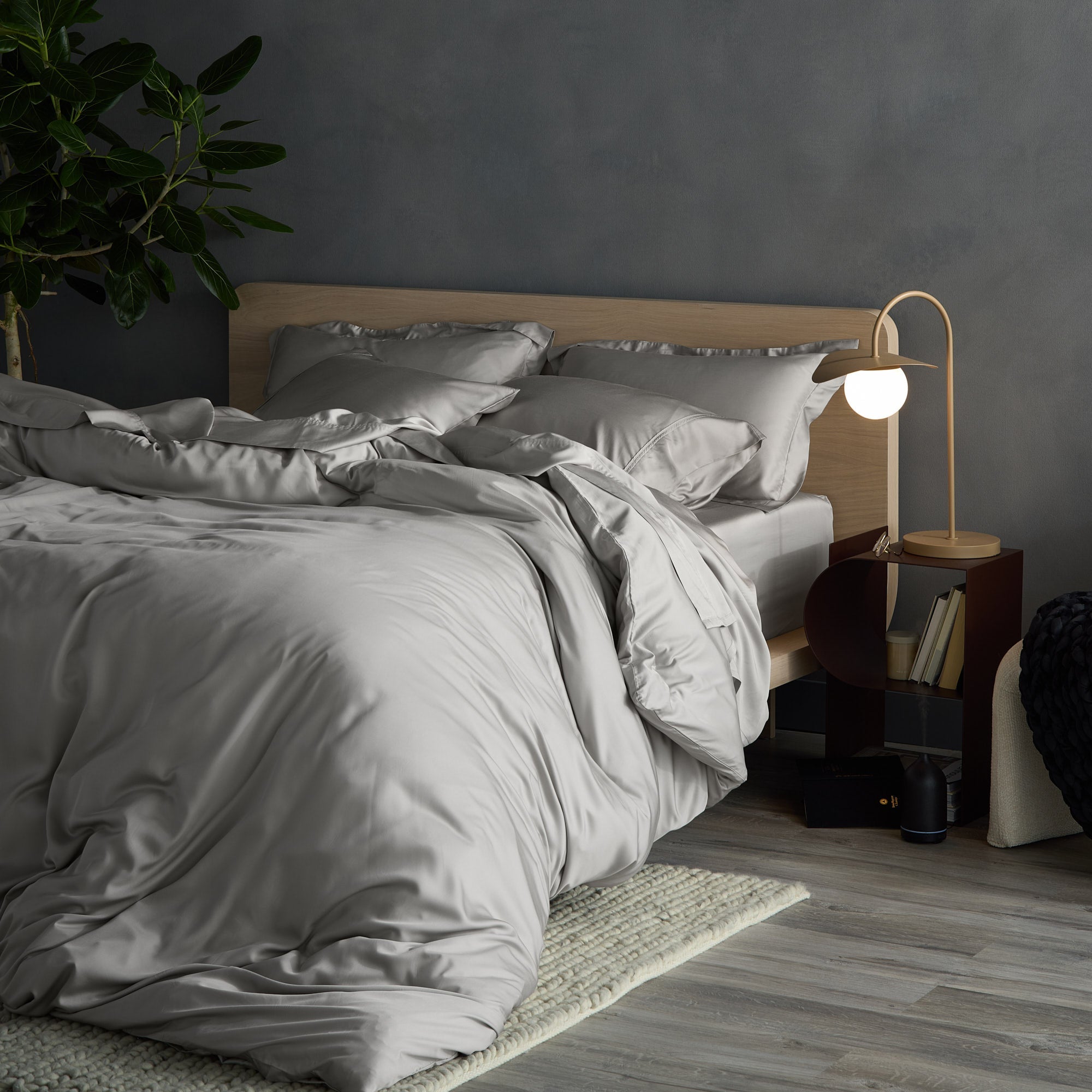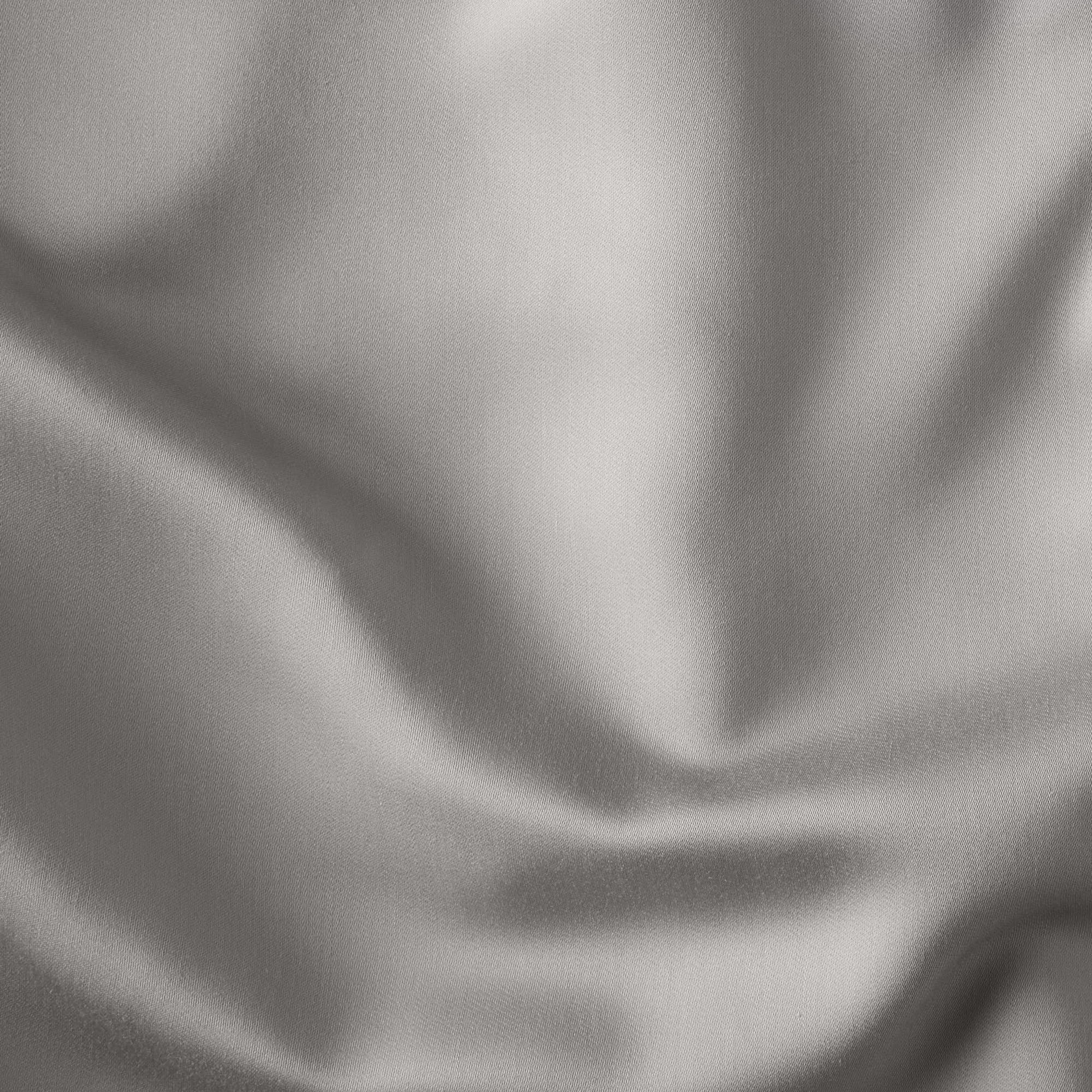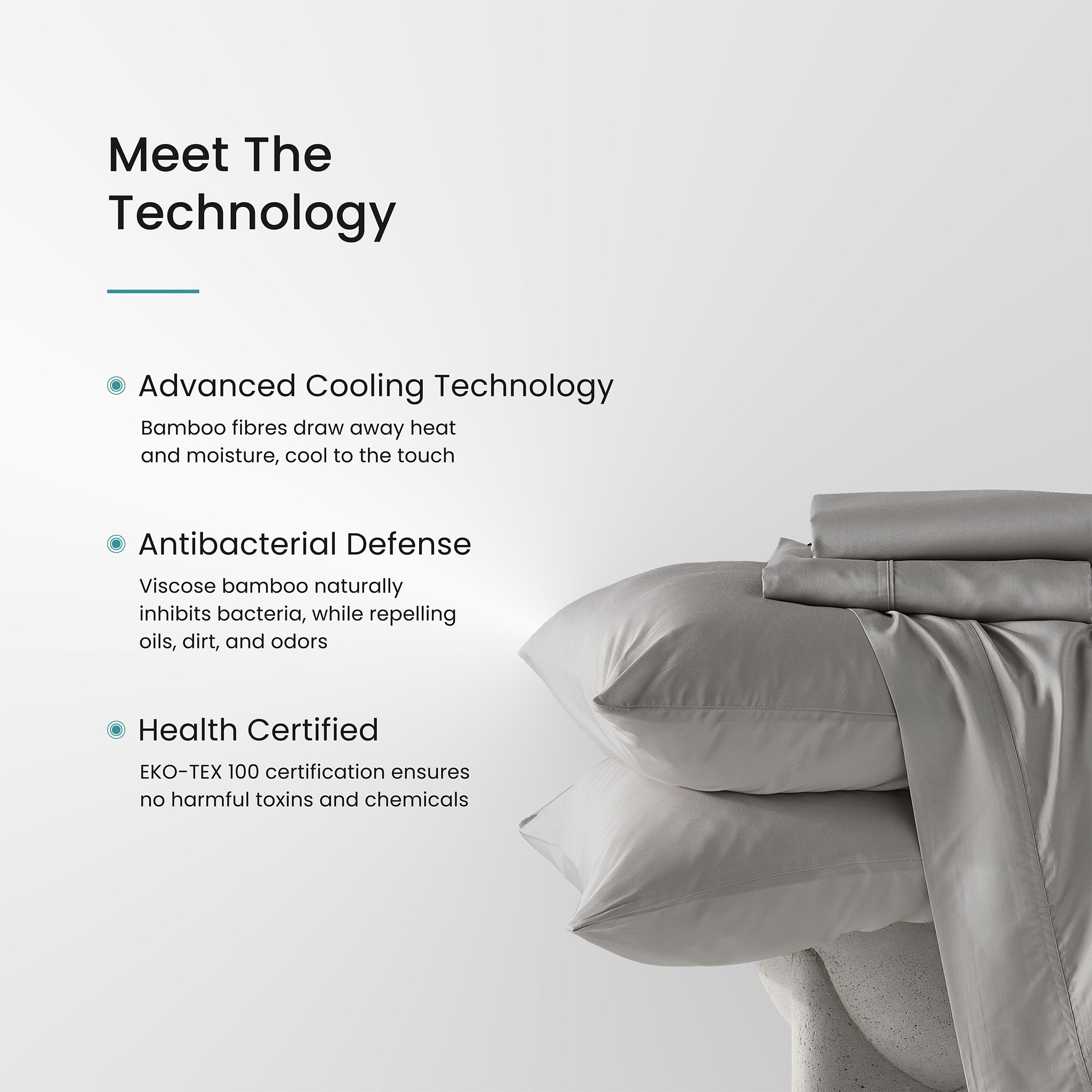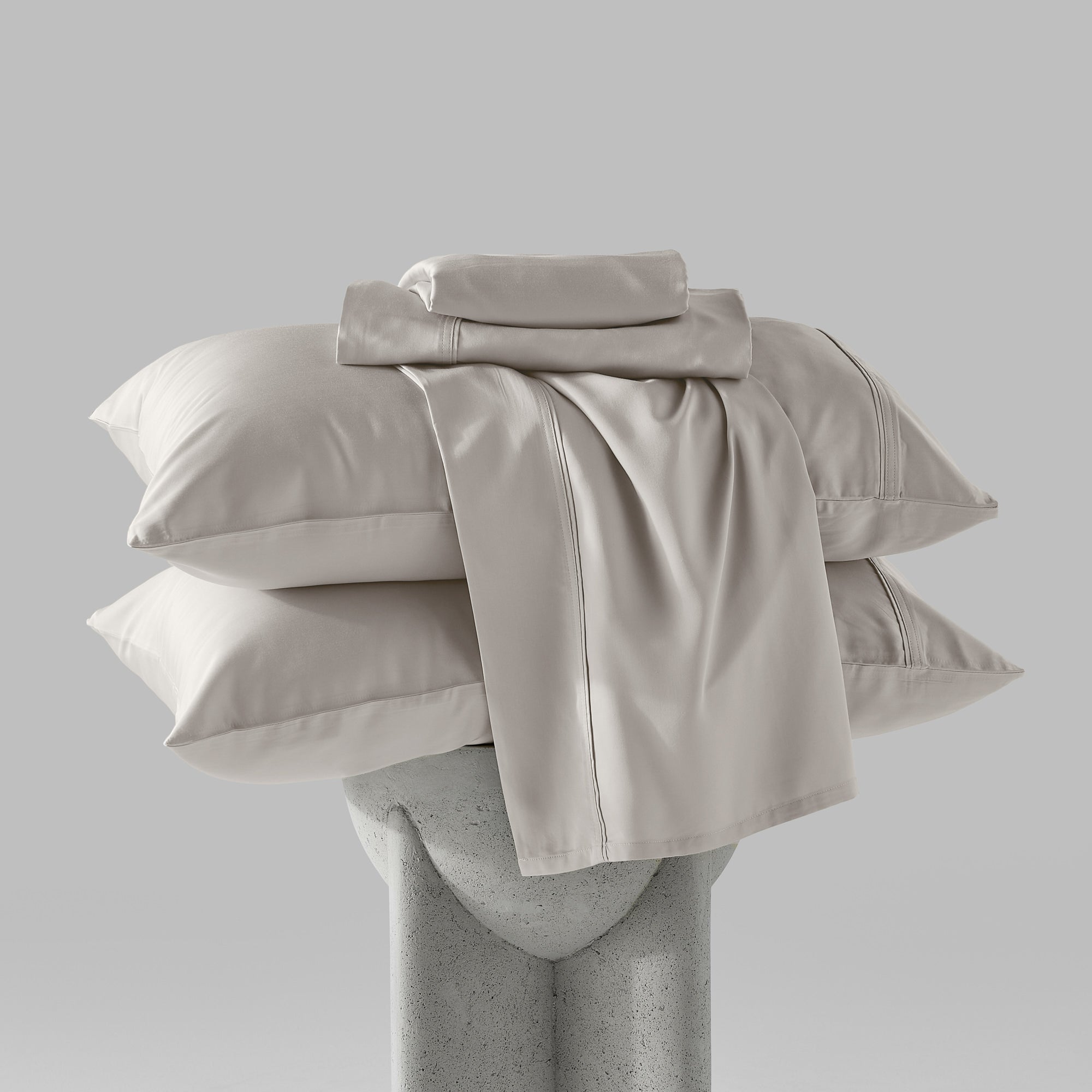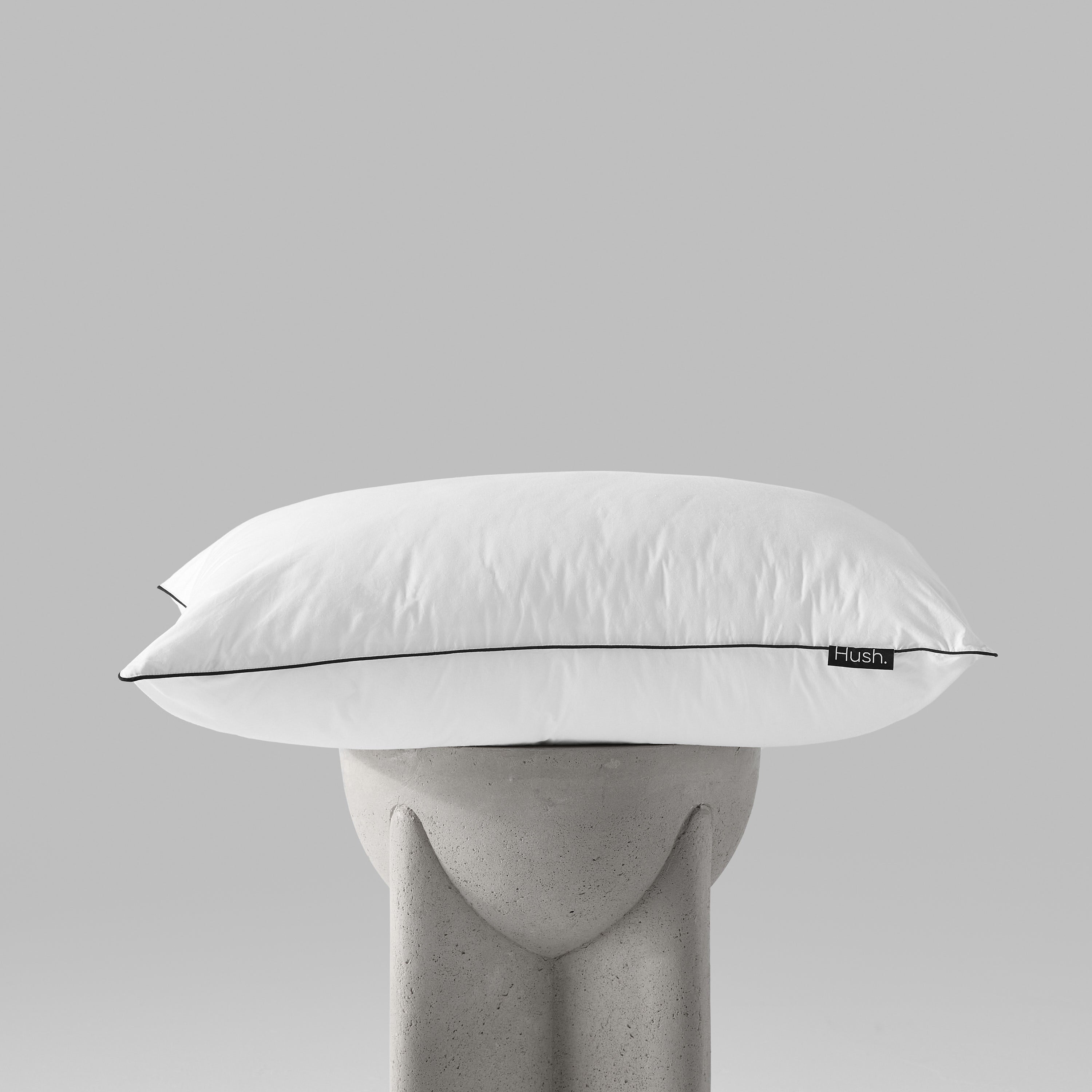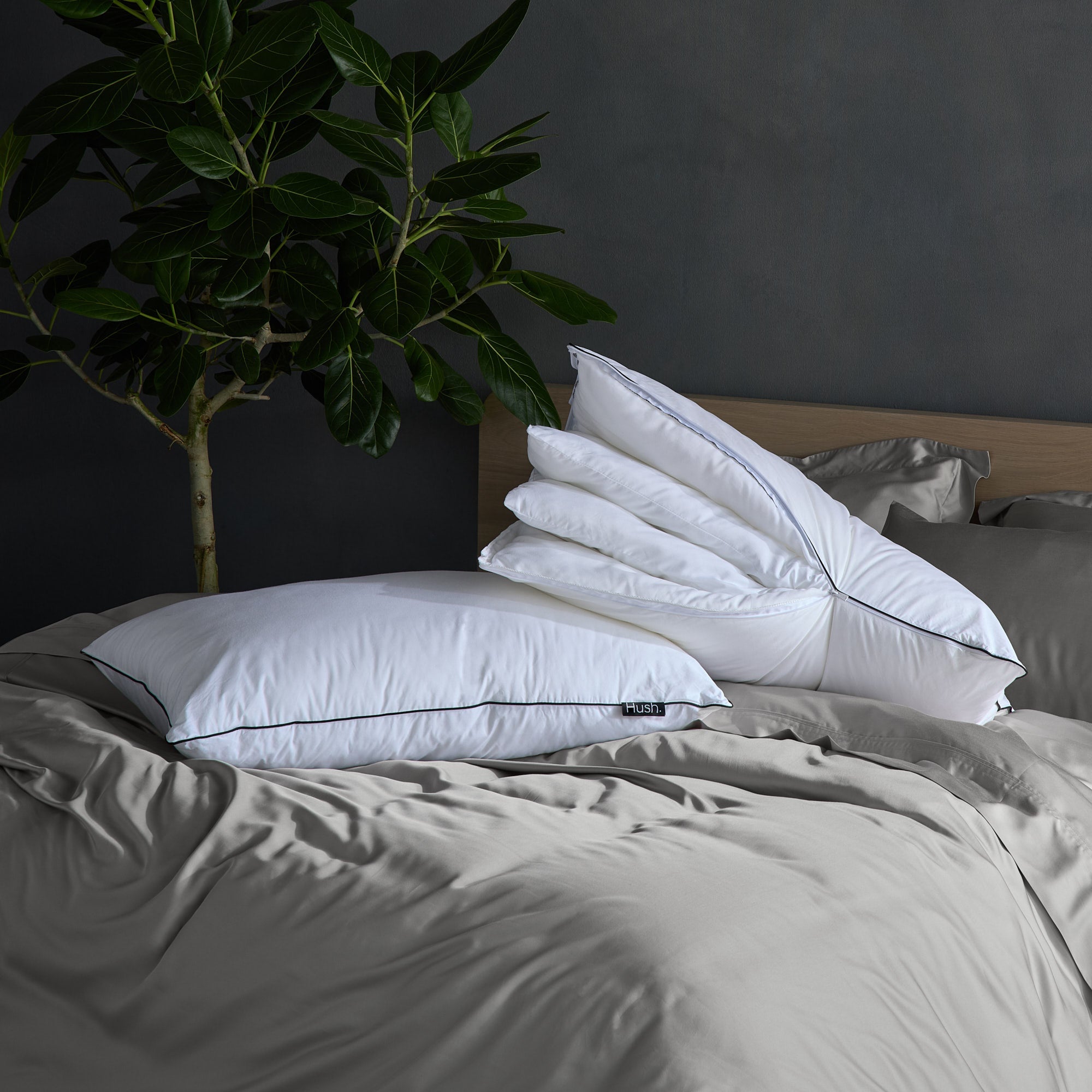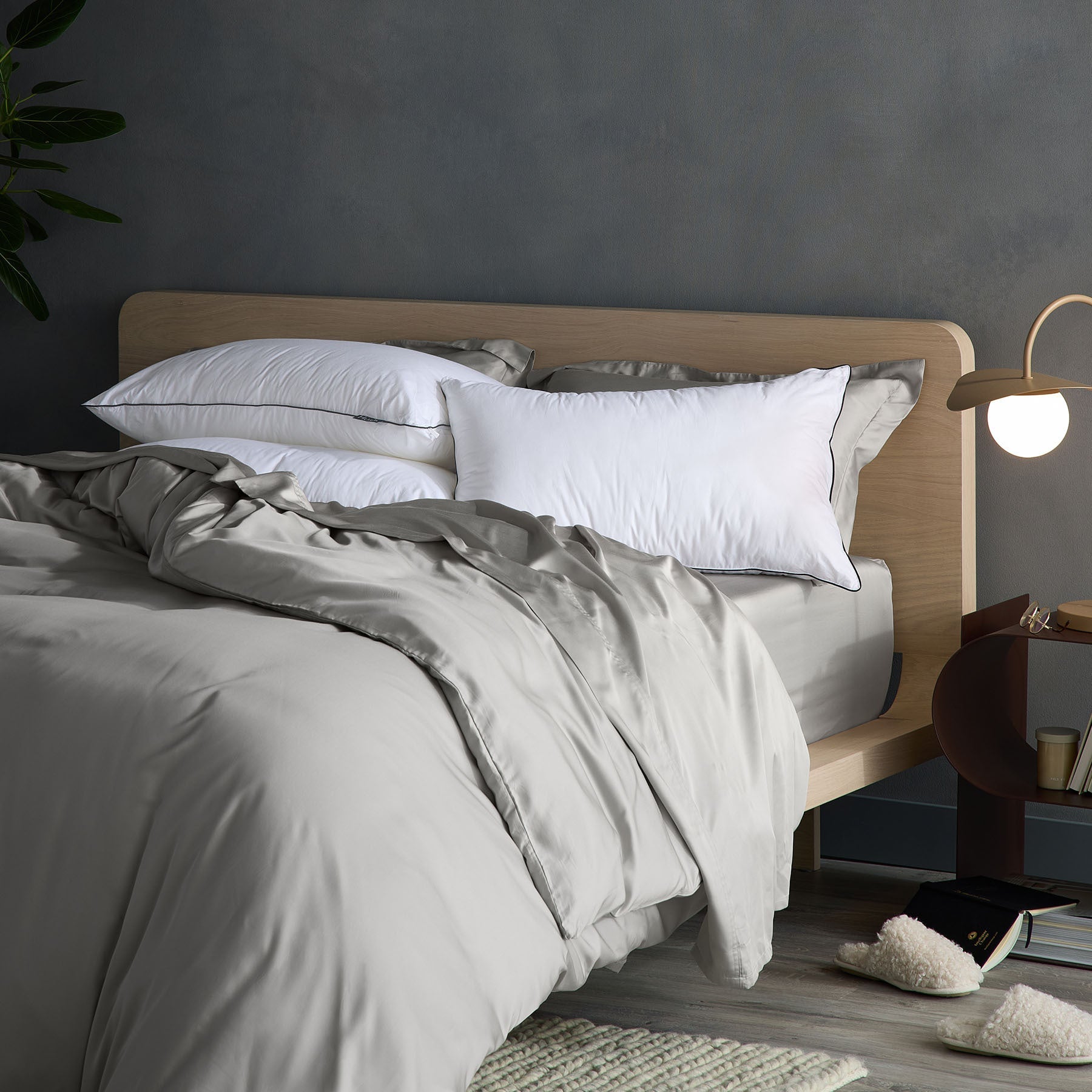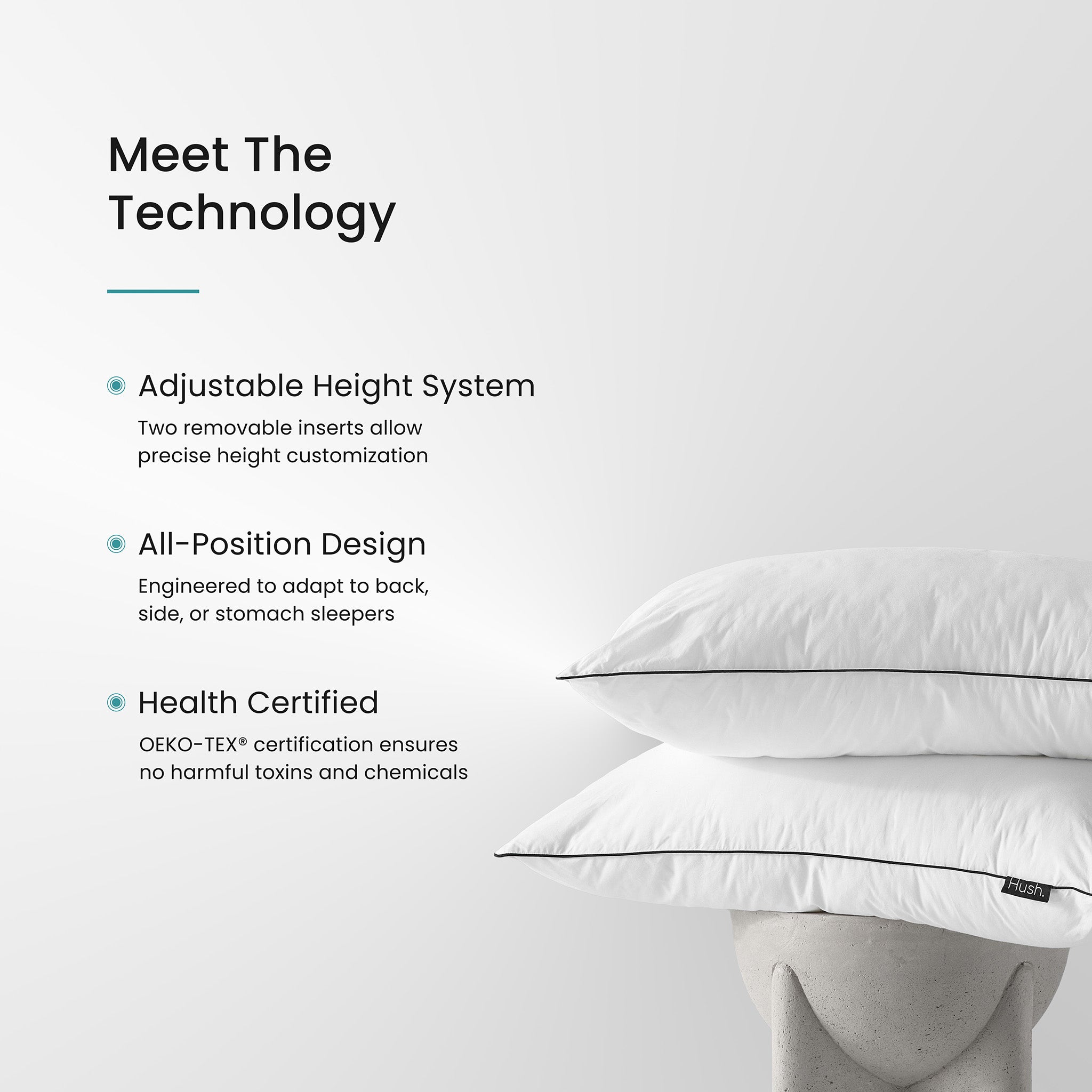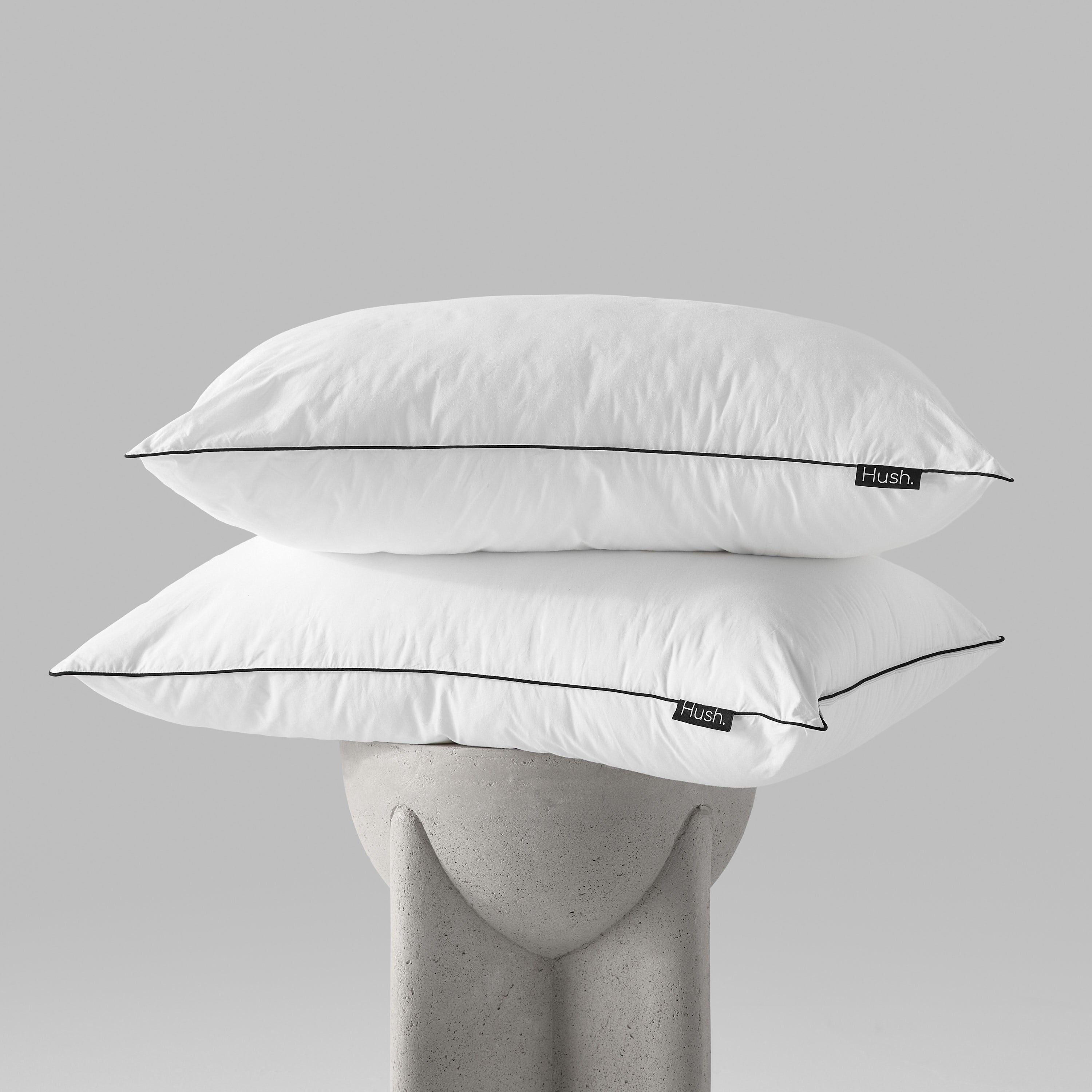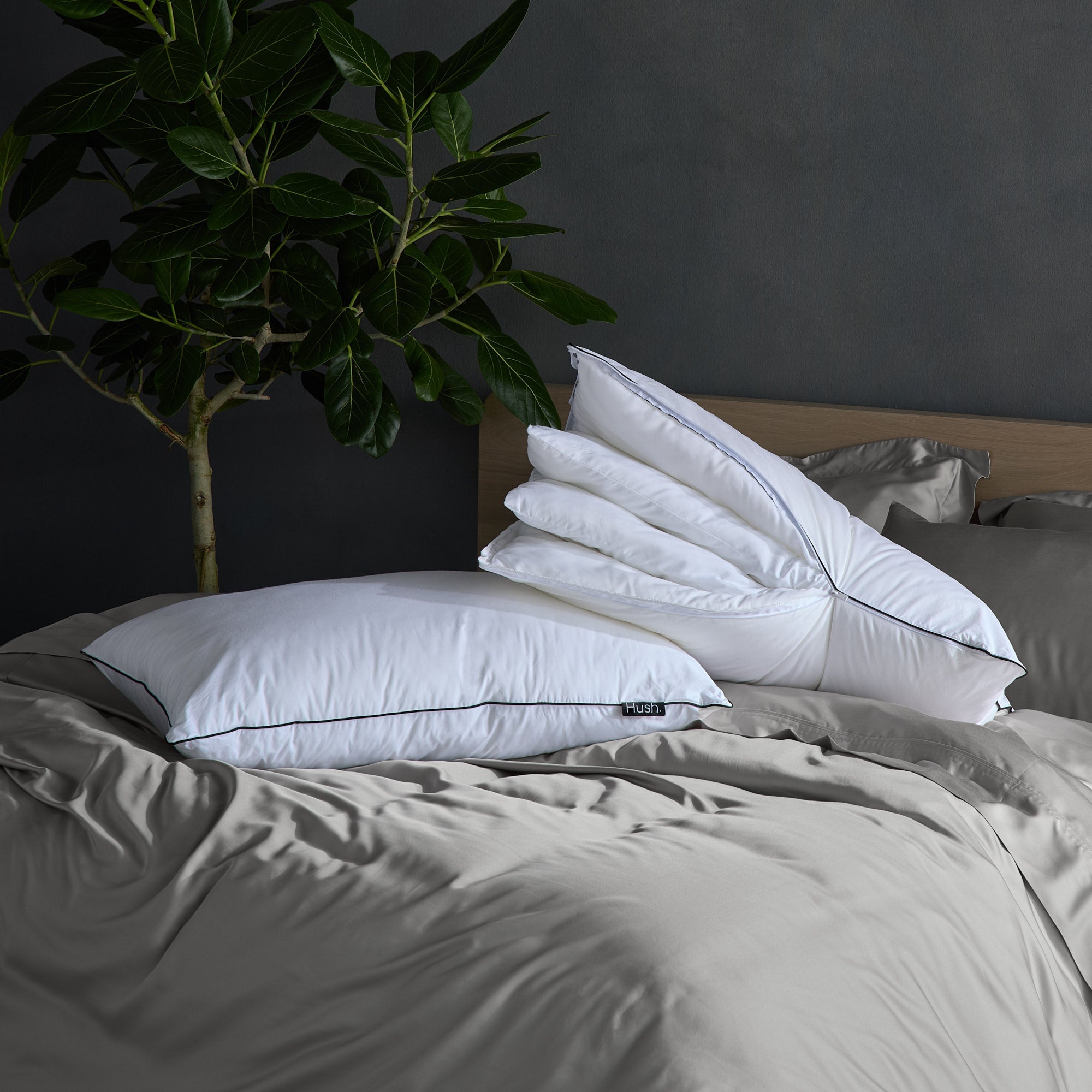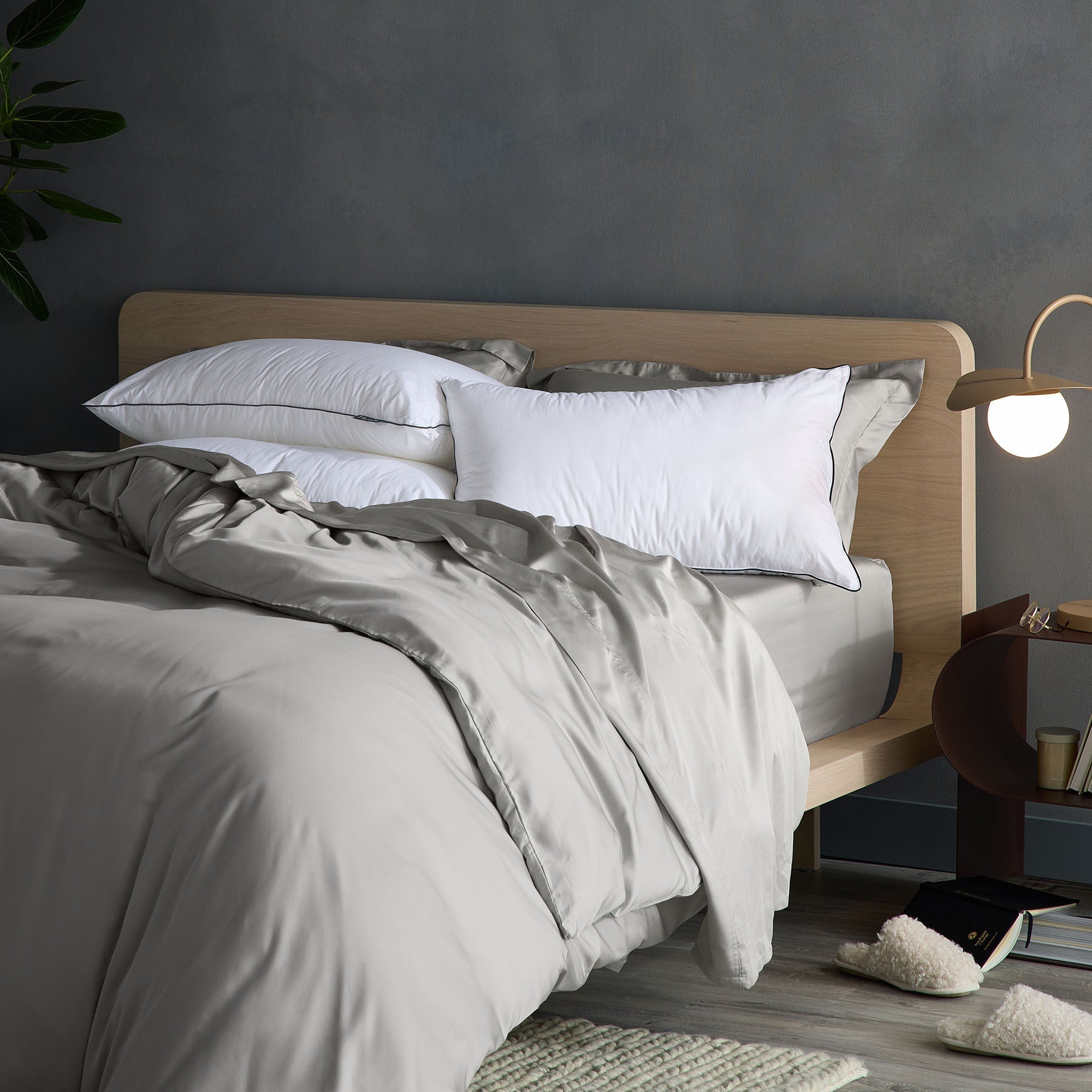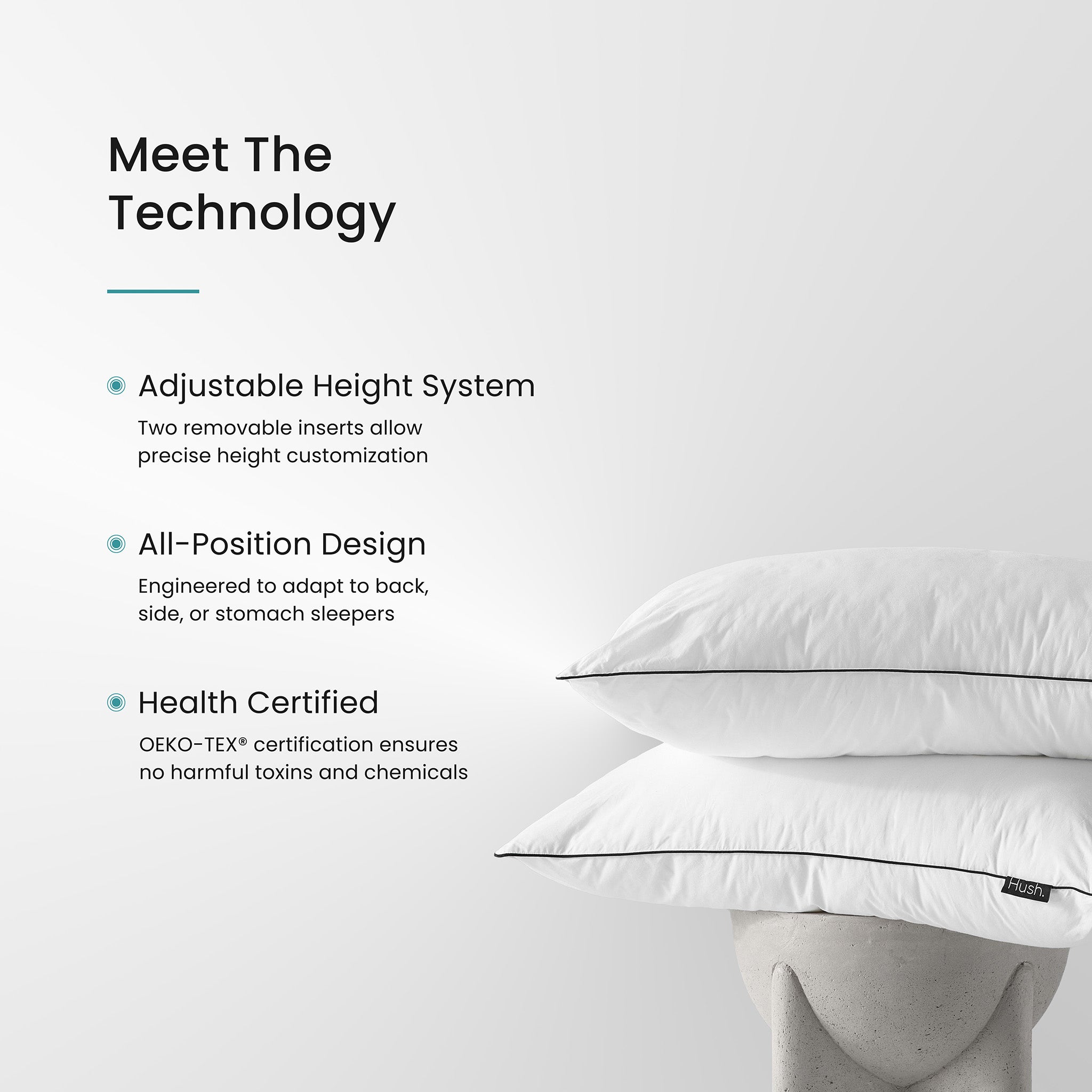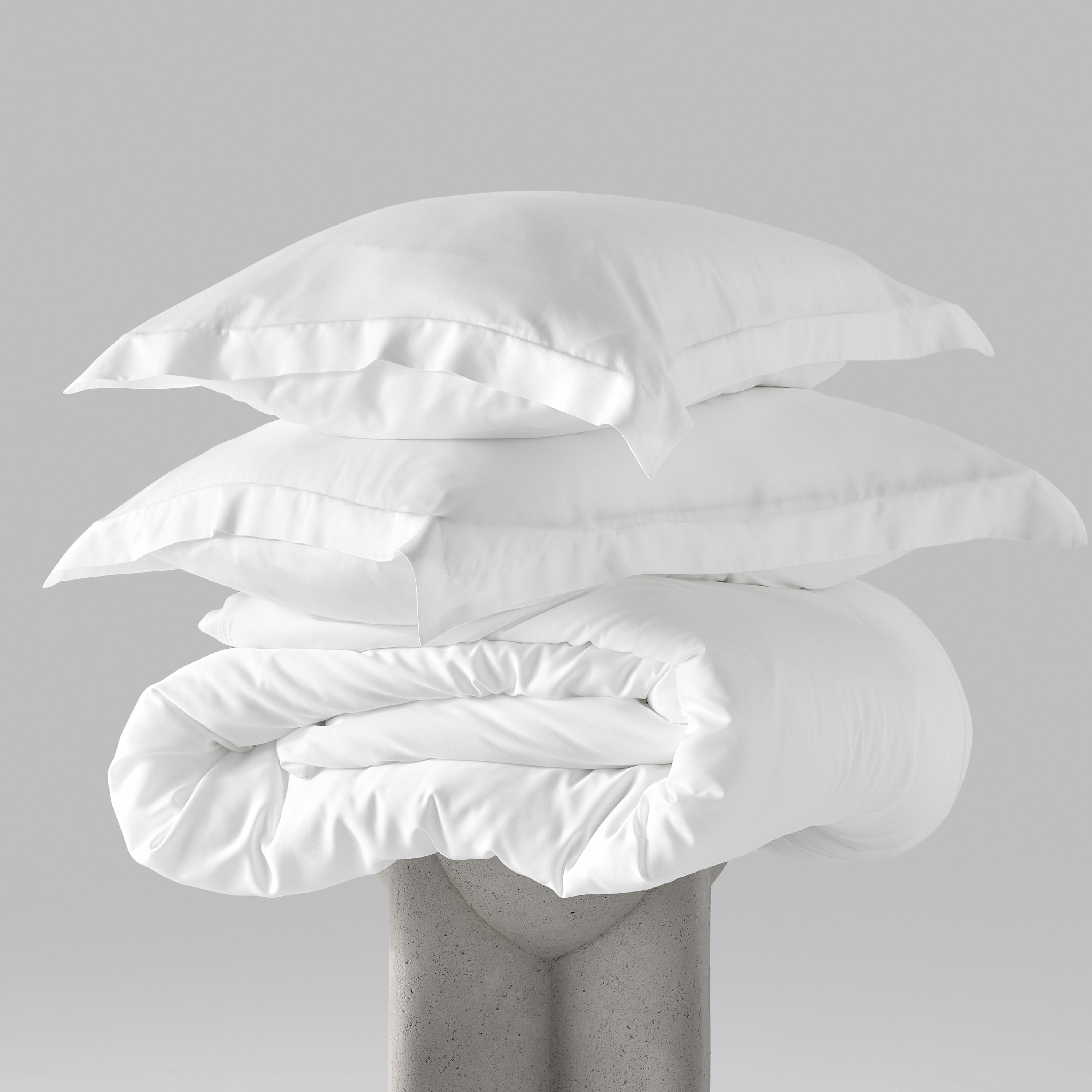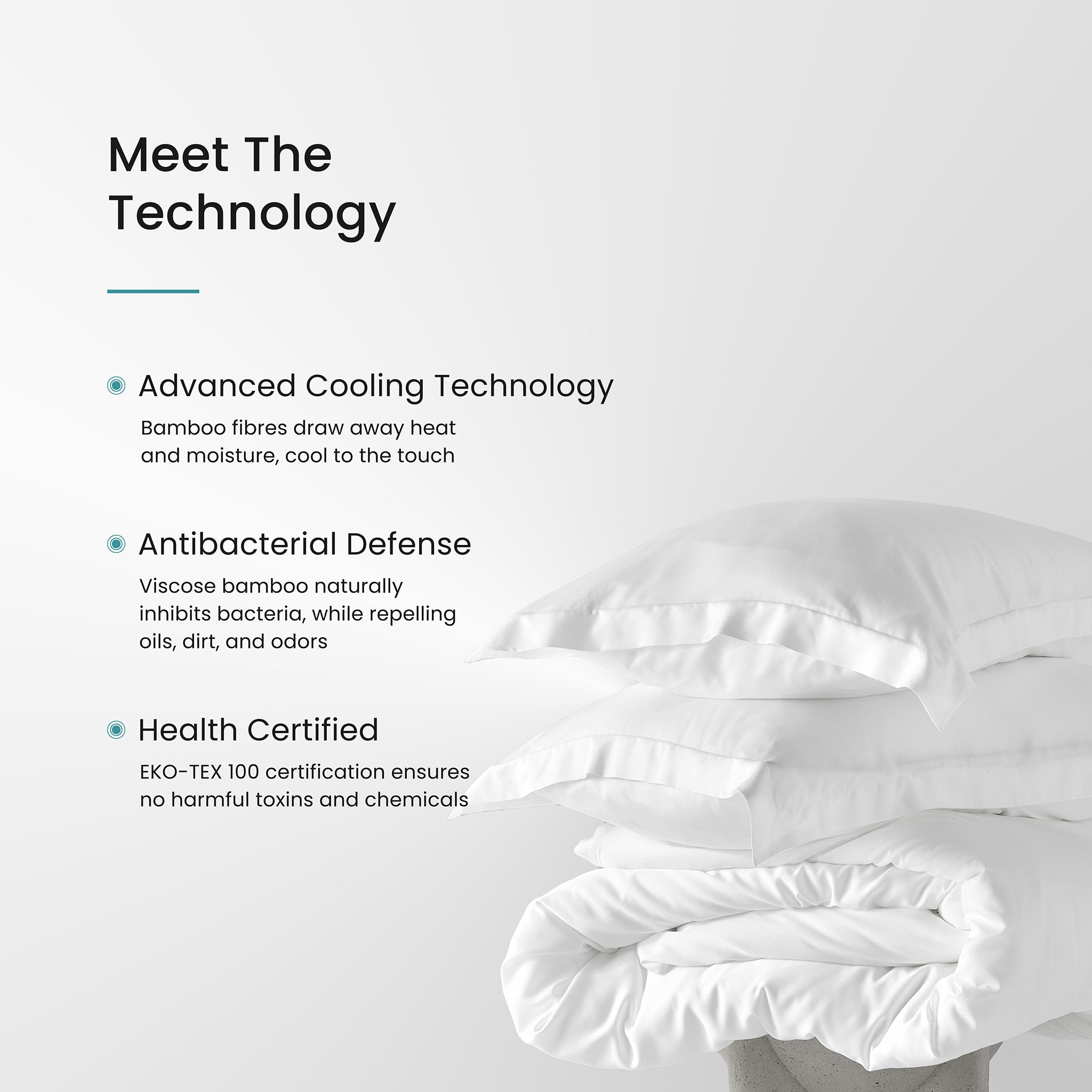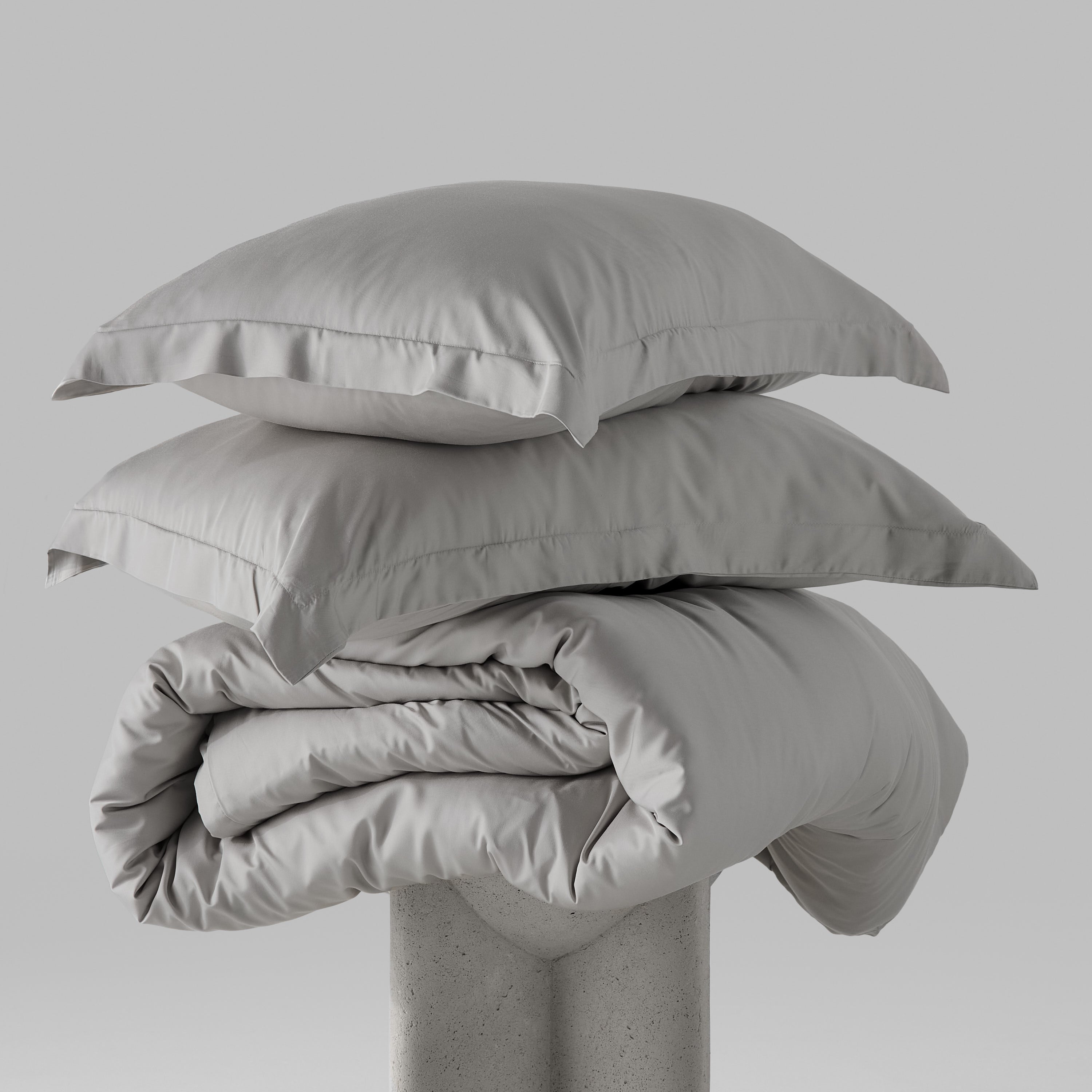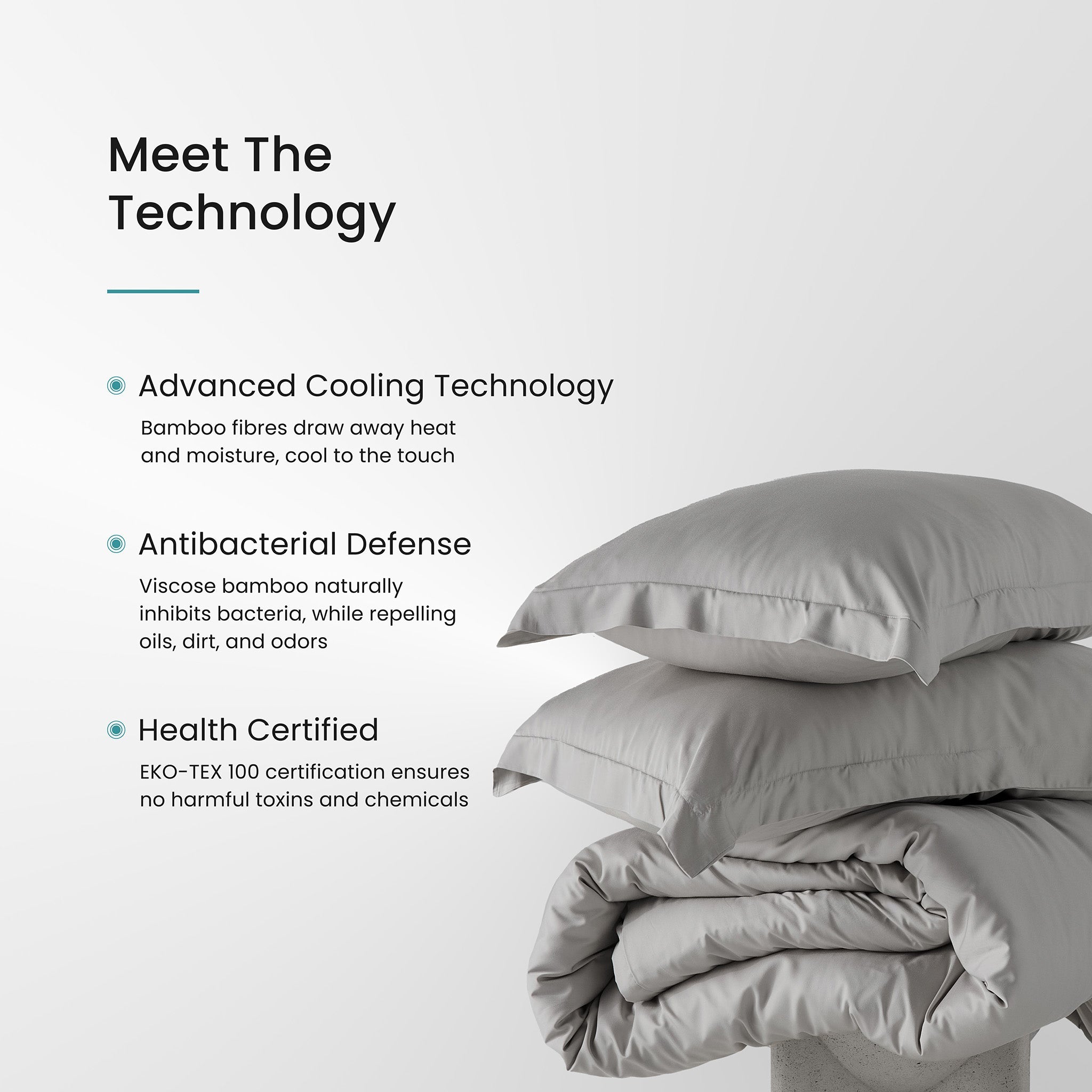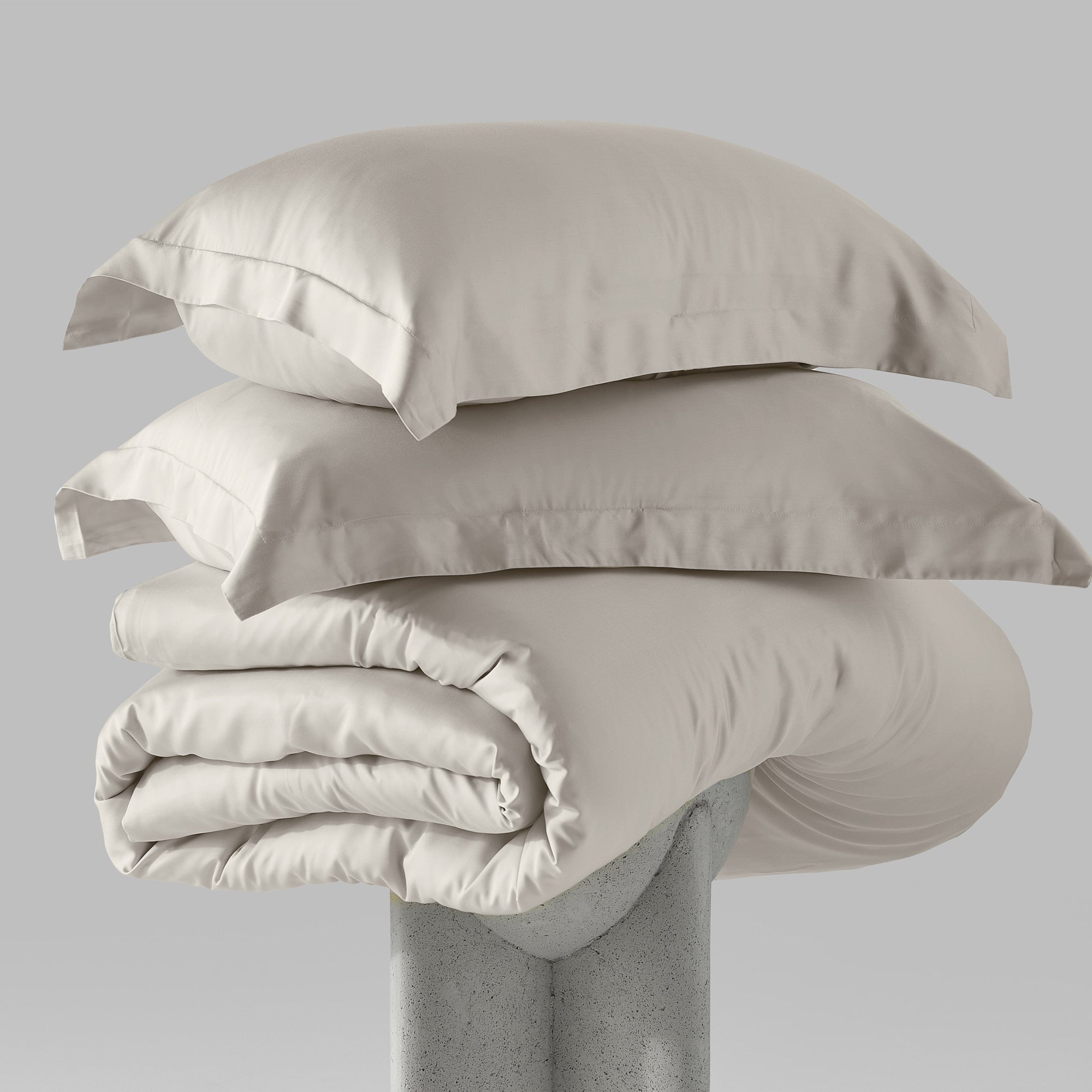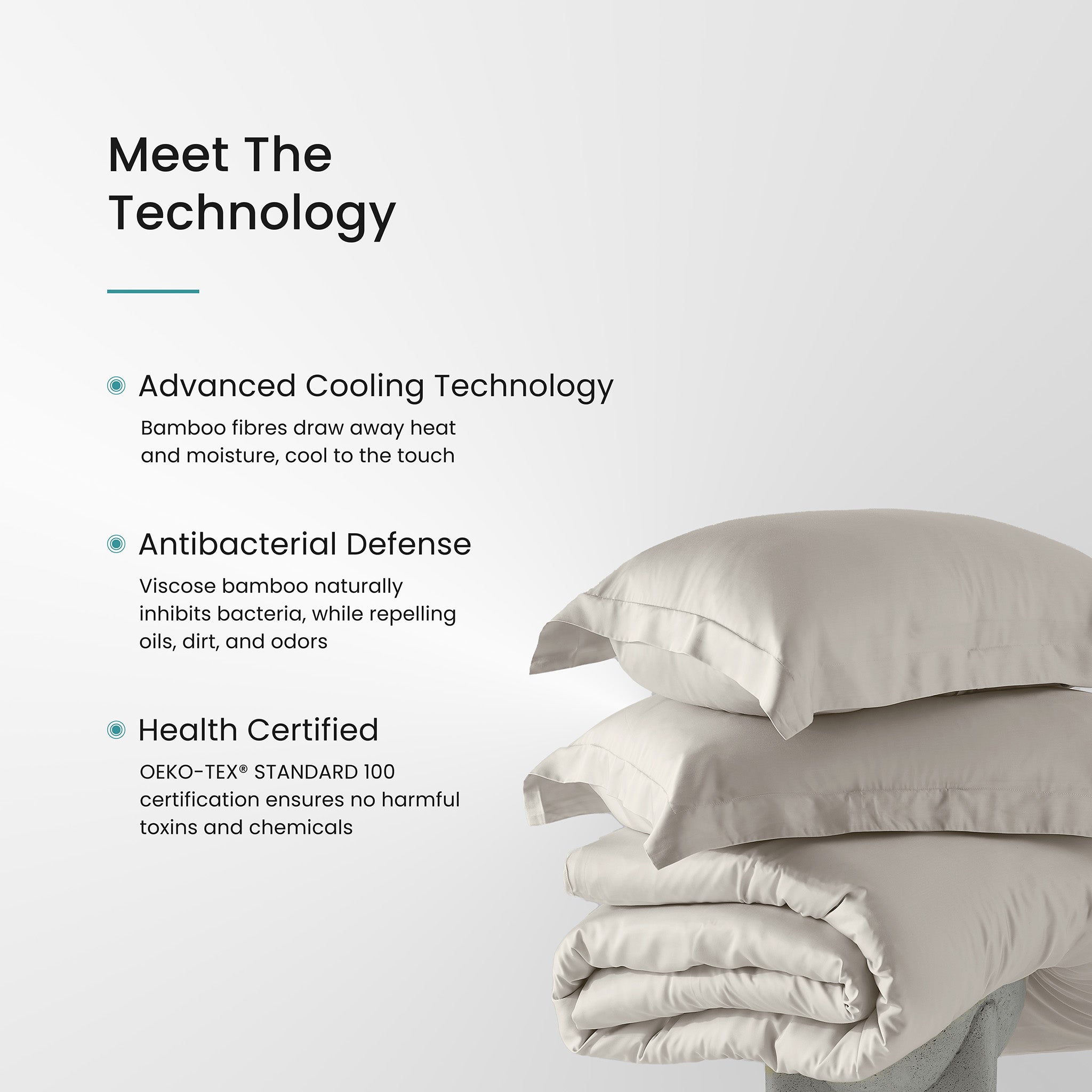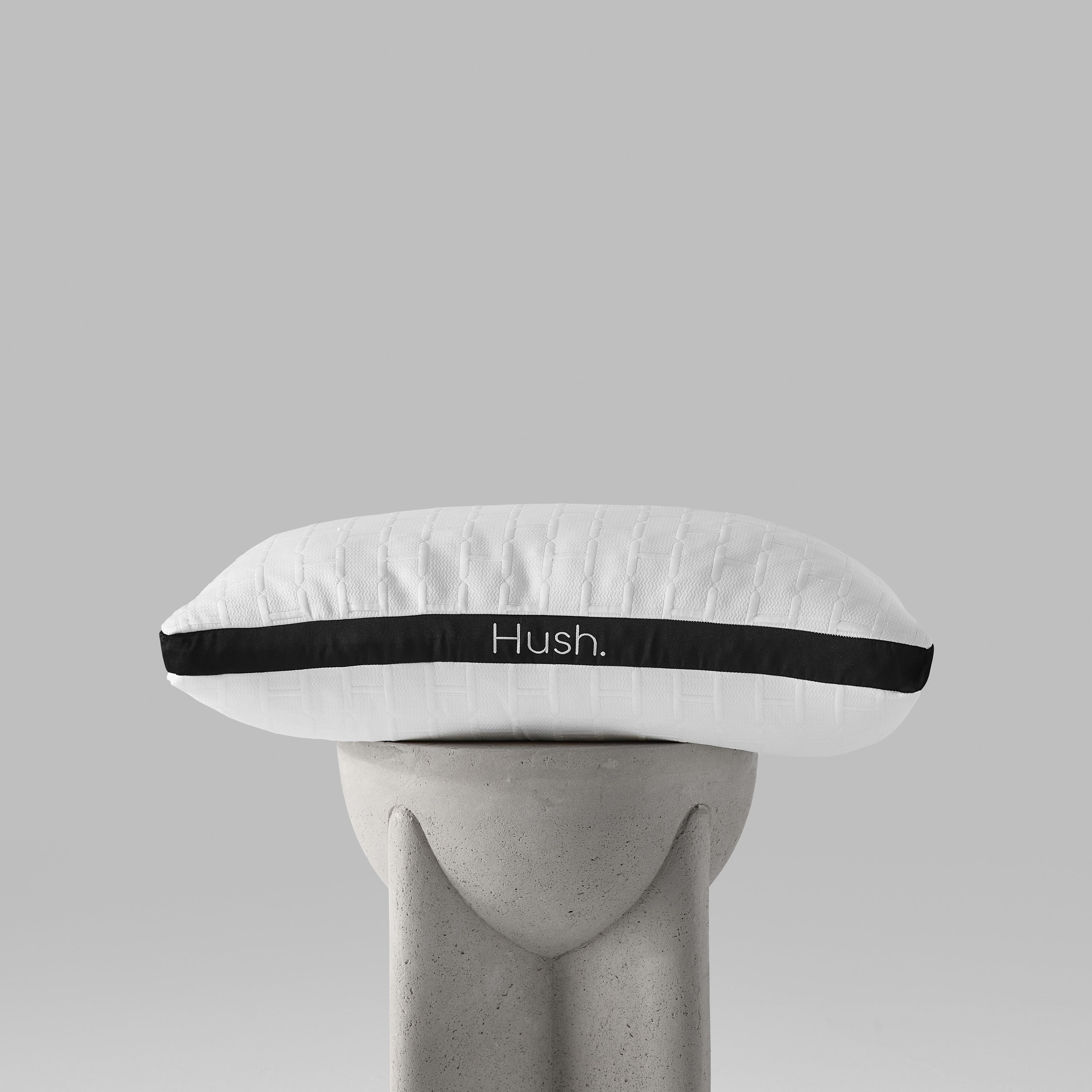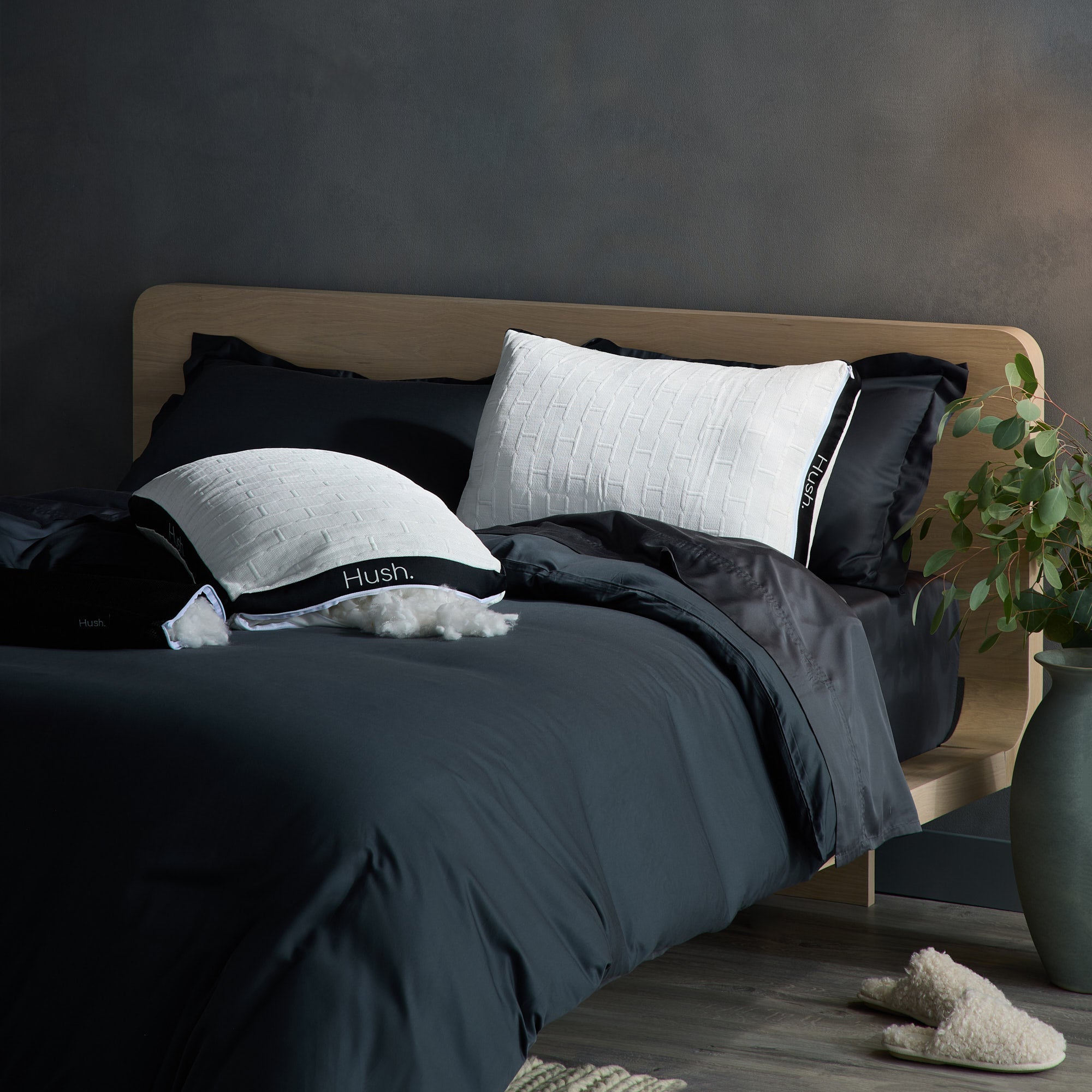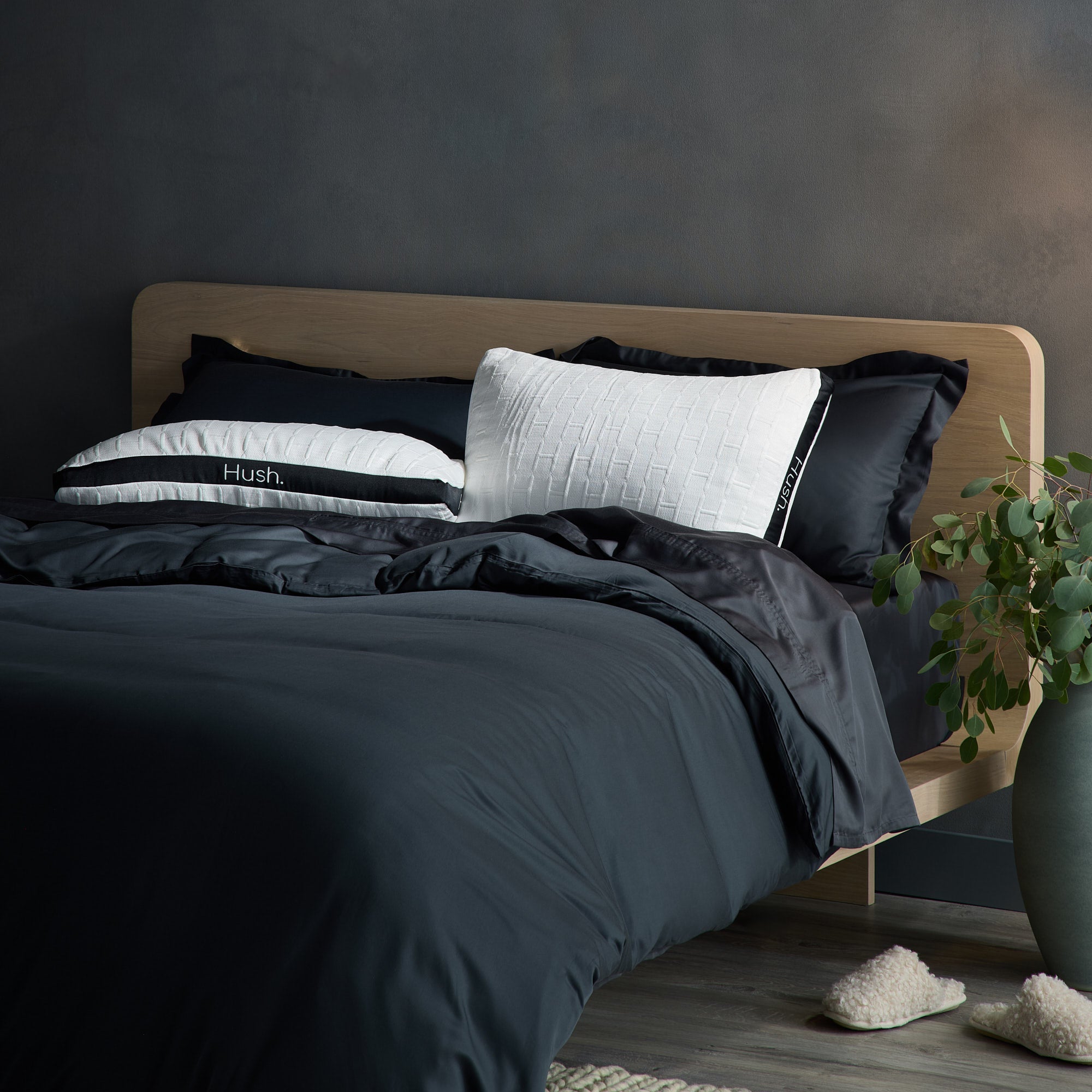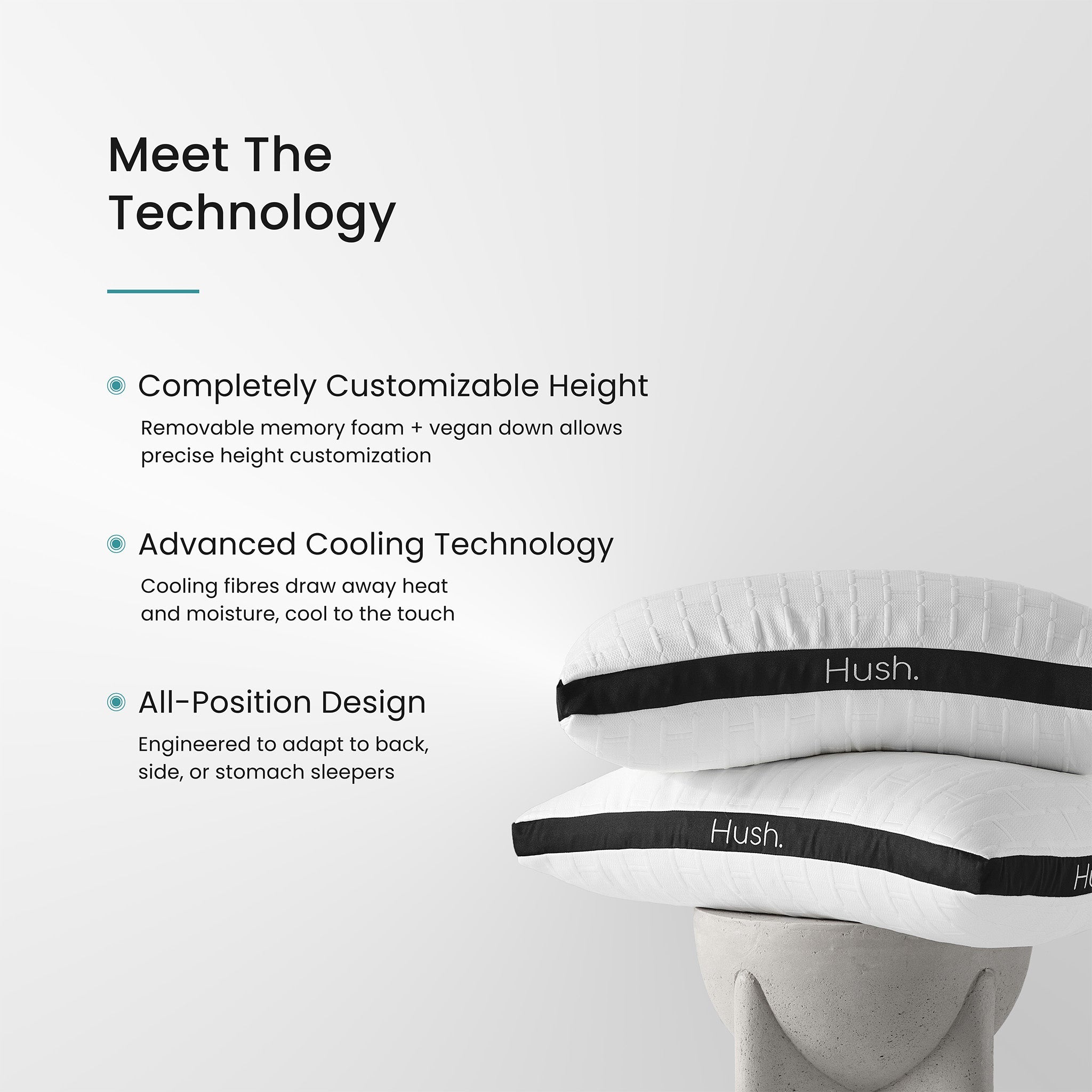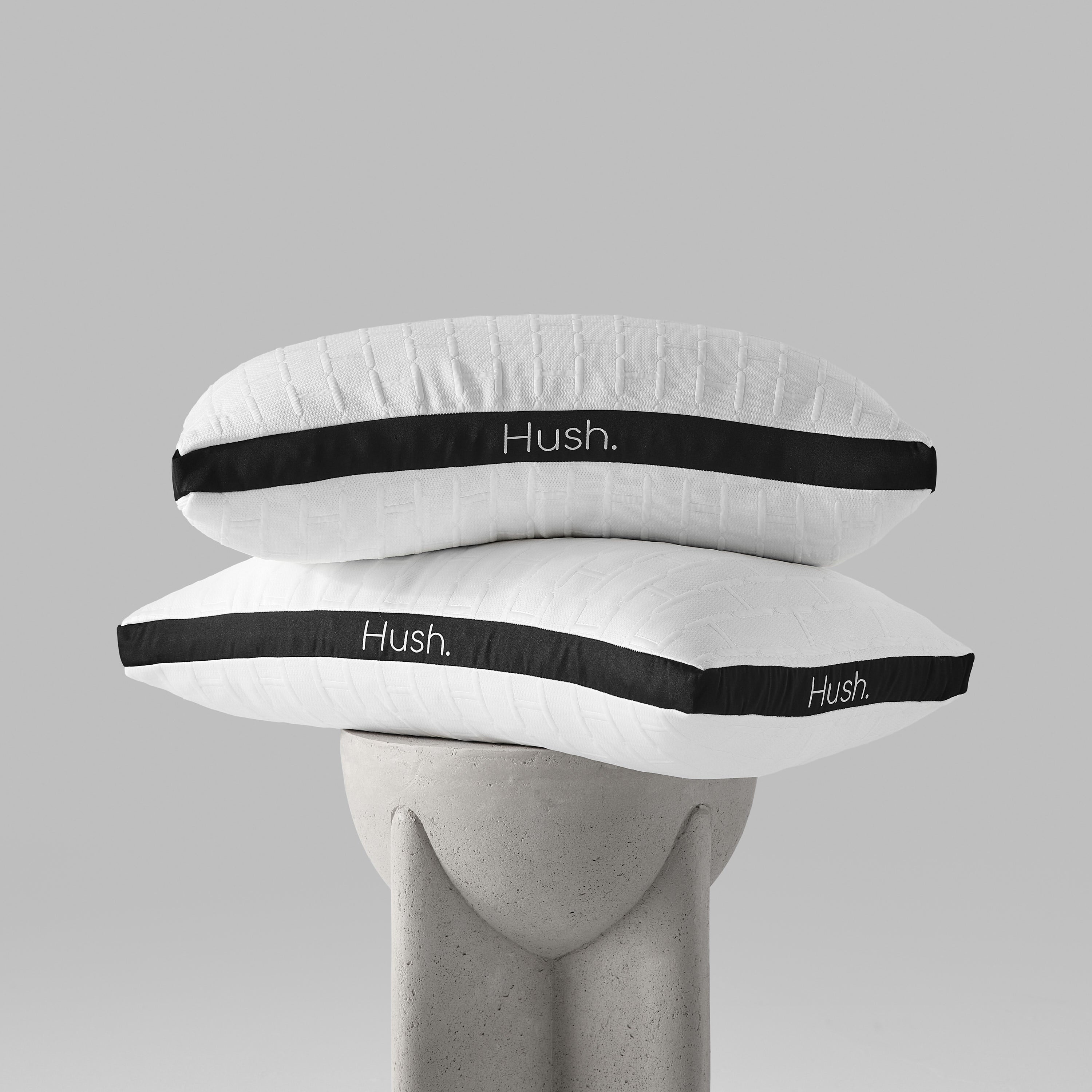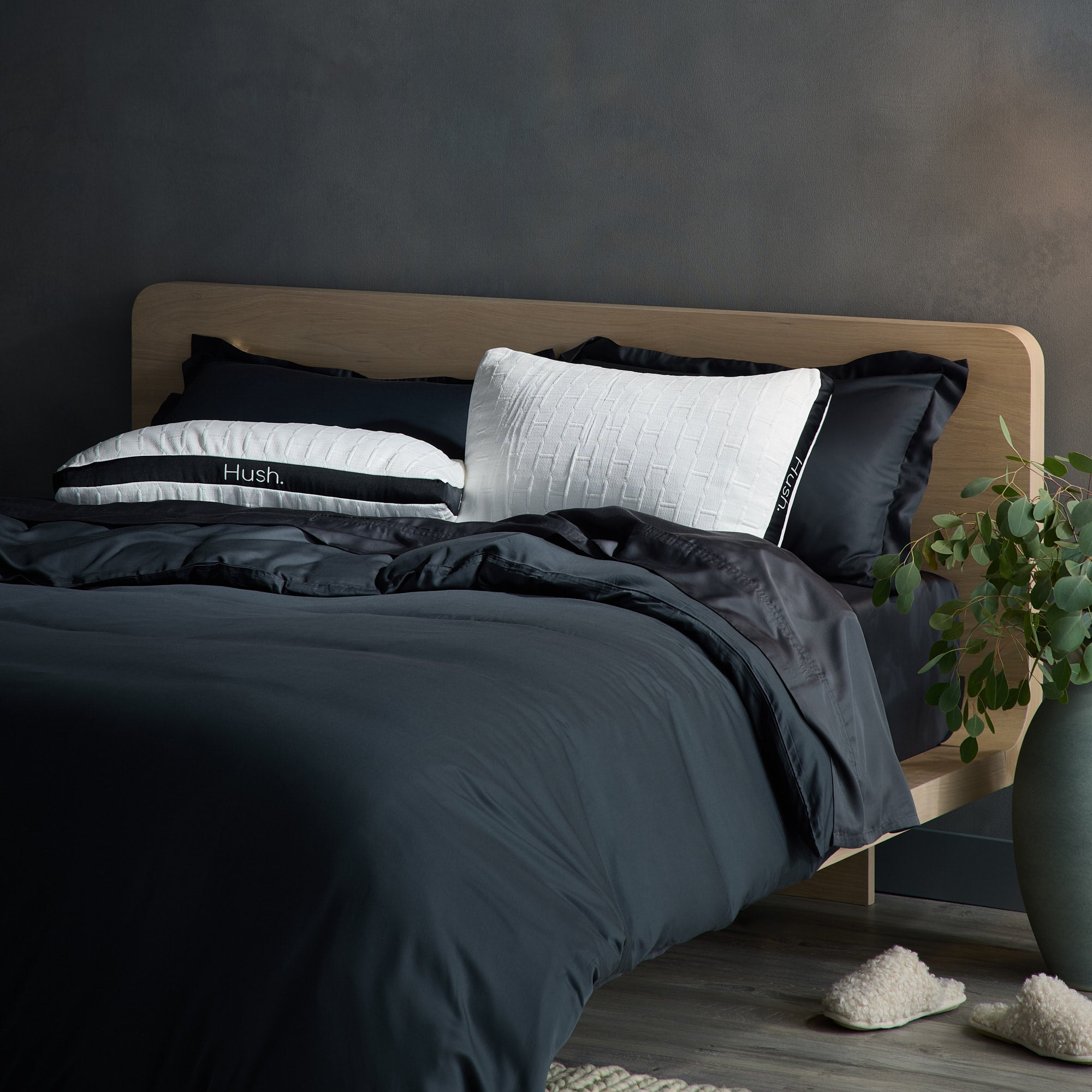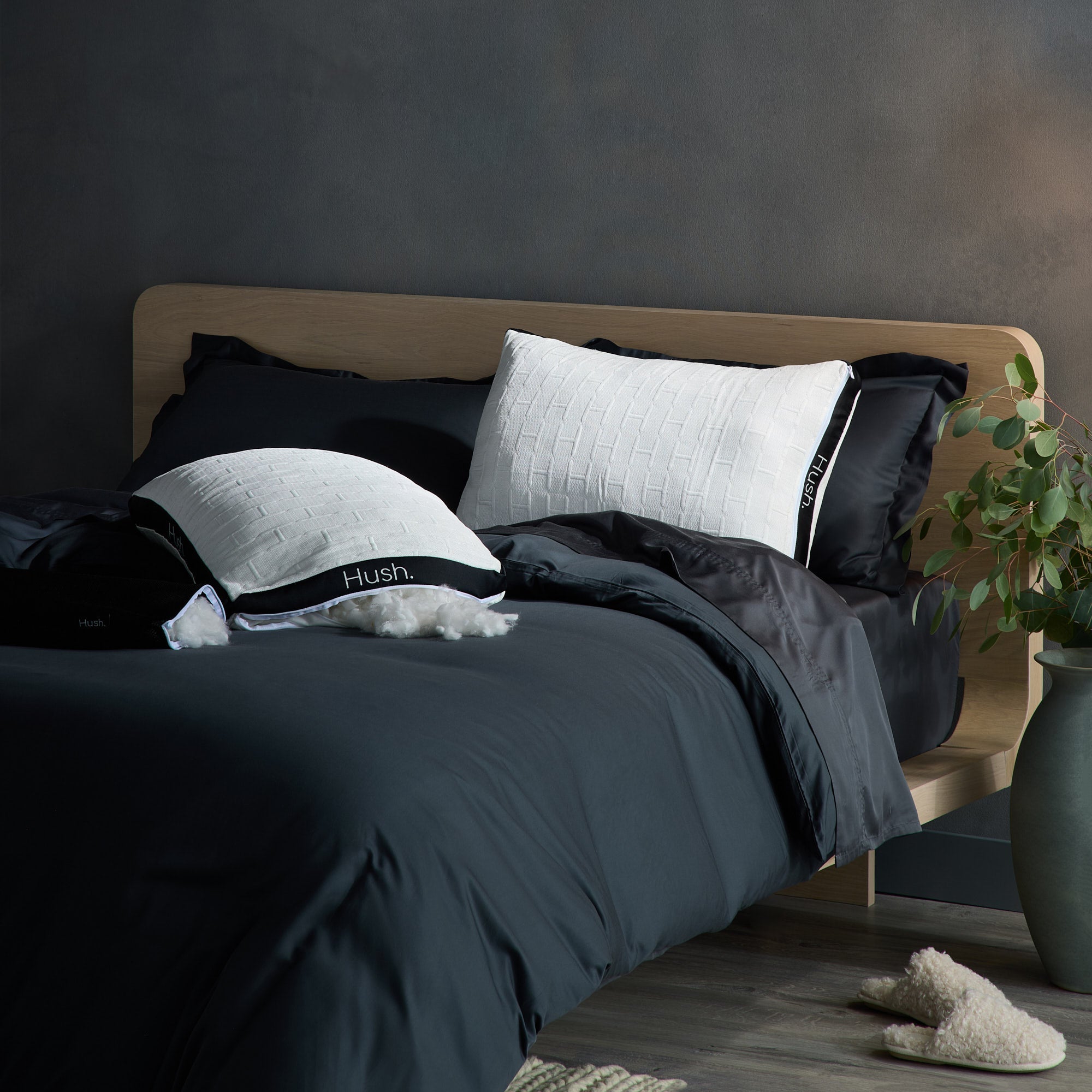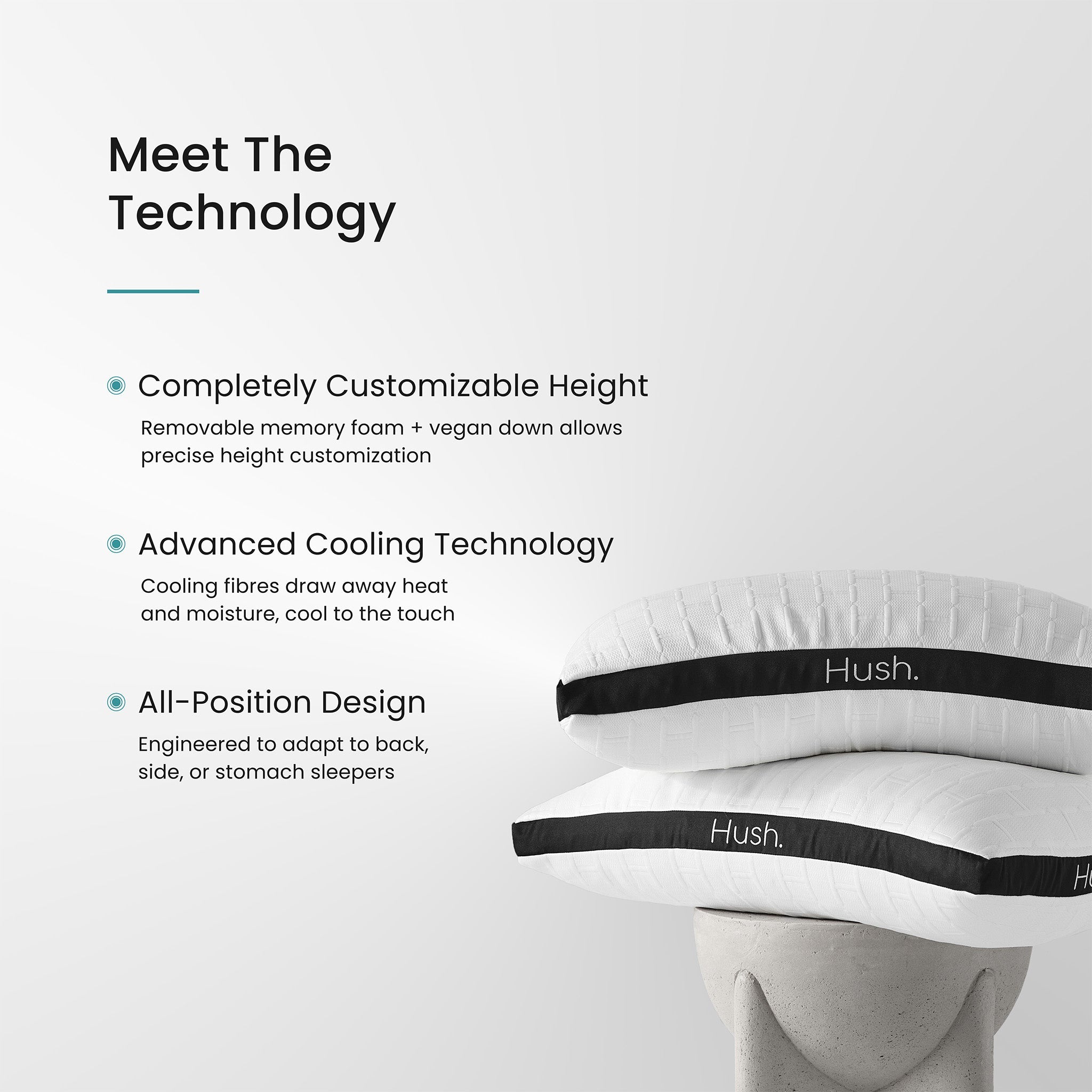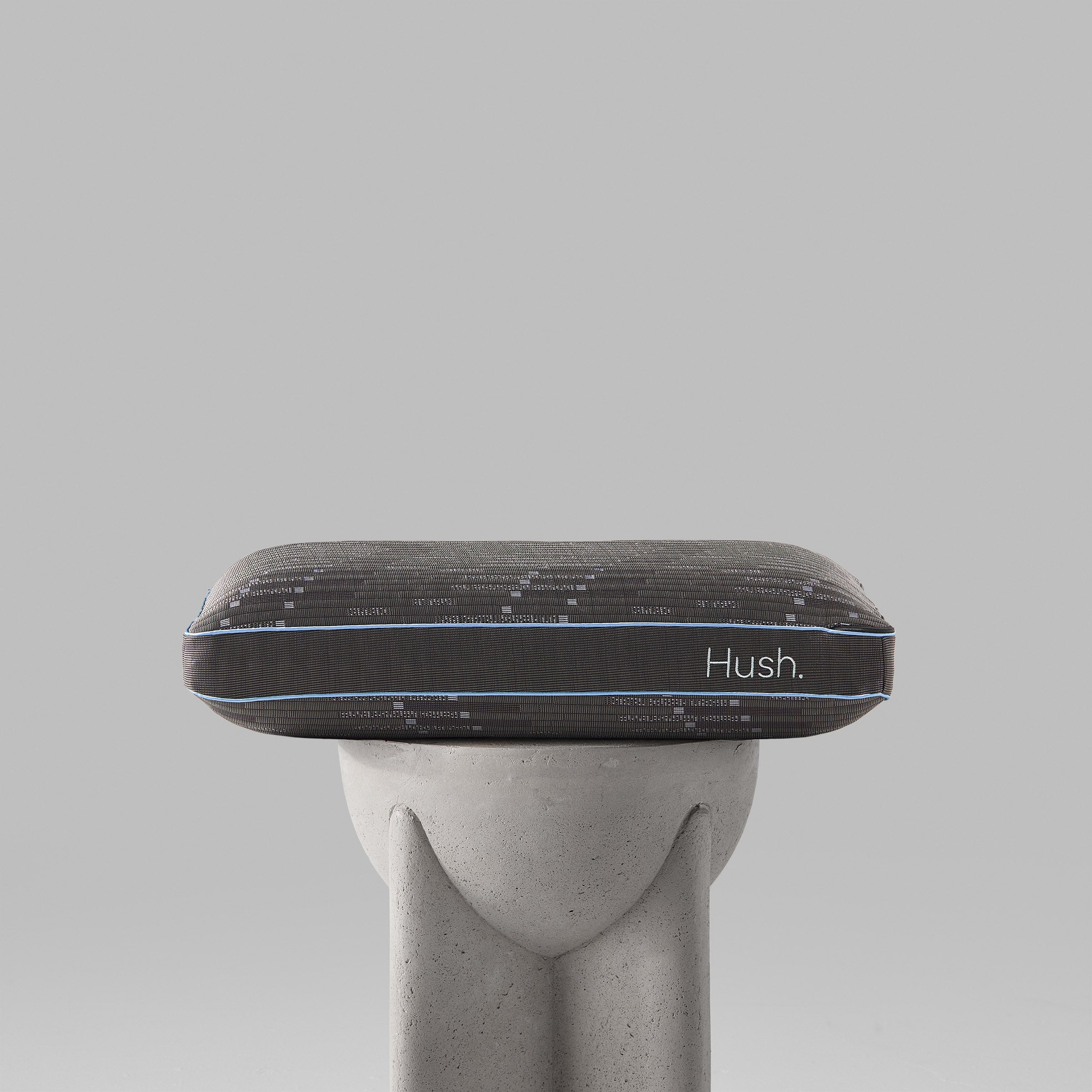If you’re an allergy sufferer, you’ll already know just how debilitating it can be - and you likely also know that certain fabrics, environments and materials exacerbate symptoms more than others. But what you might not know is that your bedding - including your sheets, duvets and pillowcases - could be triggering your allergy symptoms.
After all - consider just how much bacteria the average bedding absorbs; from dead skin cells and sweat to odours and dust, it’s not unusual that your bed might have you itching, sneezing and scratching in the morning (or worse, as you try to nod off).
This is where bamboo sheets come in: eco-friendly and soft-to-the-touch, bamboo sheets are known for their antibacterial and sweat-wicking properties, not to mention their ability to temperature-regulate and help you get a better night’s sleep. But are bamboo sheets hypoallergenic? Let’s take a look.
What Causes Allergies?
First of all, what causes allergic reactions? And when we talk about allergies here, we’re not talking about the anaphylactic peanut kind; moreso the itching, irritation-provoking allergies that you might experience during heavy pollen season or in dusty environments. Here are some common causes:
Sweat
One major irritant for many sleepers is sweat; traditional bed linens can trap sweat, creating a moist environment conducive to the growth of bacteria and fungi. These microorganisms are not just unsightly or odorous; they can also be genuine allergens that have you waking up red and itchy.
Dust
You’ve likely already heard of dust mites, but did you know these miniscule (or, let’s face it, invisible) creatures may actually be the reason that you wake up sneezing every day? Dust mites, as their name infers, feed on dead skin cells and dust, which is why they find a veritable feast in our beds - especially if you don’t wash your bedding regularly!
Dead Skin Cells
As we already mentioned above, we shed millions of skin cells daily, and while this is a natural and healthy process, it isn’t always fun and games for allergy sufferers. Dead skin cells, when combined with sweat, provide the perfect environment for bacteria, dust mites, and other allergens to thrive.
What Are Bamboo Sheets?
So, how can bamboo sheets help fight off allergies? First of all, what exactly are bamboo sheets? As their name implies, bamboo sheets are made from fibres derived from the bamboo plant. When turned into fabric, bamboo provides a soft, silky, and durable alternative to traditional materials.
Are Bamboo Sheets Hypoallergenic?
Yes! Thanks to the unique structure of bamboo fibres, bamboo sheets are adept at wicking away moisture, including moisture from sweat - this reduces the chances of allergy-provoking bacteria and fungus growing on the fabric.
Plus, given that bamboo sheets are made with 100% natural materials, you’re less likely to experience skin irritation from any chemicals embedded in more synthetic and artificial fabrics.
Benefits of Bamboo Sheets
Aside from being hypoallergenic, bamboo sheets also offer the following benefits:
Sustainable
Bamboo is an eco-friendly crop, and requires minimal resources for growth and regeneration. In short, this makes it one of the most environmentally friendly fabrics in the world, especially when harvested and manufactured without chemicals, as our premium bamboo sheets are.
Temperature Regulating
Temperature plays a significant role in how well we sleep, with studies showing that warm temperatures can reduce the amount of REM sleep we get each night. Unlike traditional cotton or synthetic sheets, bamboo sheets are naturally cool to the touch and can actually wick away heat from your body, allowing you to keep cool and sleep soundly throughout the night, no matter the external temperatures.
Odour Repellent
Thanks to their antibacterial qualities, bamboo sheets resist odours far better than traditional options - but this doesn’t mean you can get lazy when it comes to washing them! What this does mean, however, is that if you’re sensitive to certain odours (for example, a partner’s perfume) the scent won’t linger on your bedsheets and give you an allergic reaction every time you go to sleep.
So, Are Bamboo Sheets Good for Allergies? The Verdict
So, are bamboo sheets the best option for those with allergies? We certainly think so!
From their natural sweat-wicking properties to their antimicrobial and antibacterial powers, bamboo sheets significantly reduce the chances of your bed becoming a breeding ground for bacteria and fungi. Additionally, the tight weave of bamboo fabric acts as a barrier against dust mites, ensuring they have less access to their favourite food - our dead skin cells.
Moreover, for those who have sensitive skin or are prone to irritations, bamboo sheets offer a gentle, soft touch, which also helps in minimizing friction and potential irritations.
FAQs
How often should I wash bamboo sheets to ensure they remain hypoallergenic?
While bamboo sheets have natural antibacterial properties, it's still advisable to wash them every one to two weeks. Regular cleaning will help in removing accumulated dust, skin cells, and any potential allergens, ensuring a consistently fresh sleep environment.
Can bamboo sheets help with other skin conditions like eczema?
Yes! Given their natural, soft-touch feel, you may experience a reduction in skin irritations after switching to bamboo sheets. Their smooth texture and hypoallergenic qualities can be particularly beneficial for those with sensitive skin conditions like eczema - but remember that they aren’t a replacement for proper management of any allergies or skin conditions you may have.
How do I maximize the lifespan of my bamboo sheets?
When it comes to bamboo sheets, proper care is essential. For tips on storing bamboo sheets and ensuring they remain in premium condition, take a look at our comprehensive guide on bamboo sheet care here.
